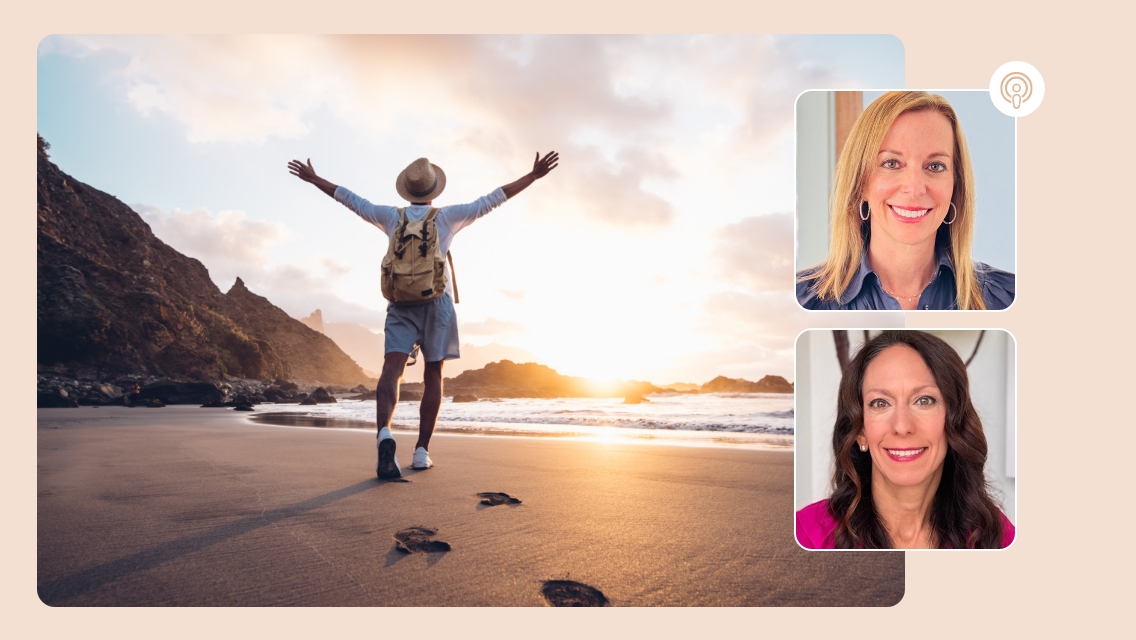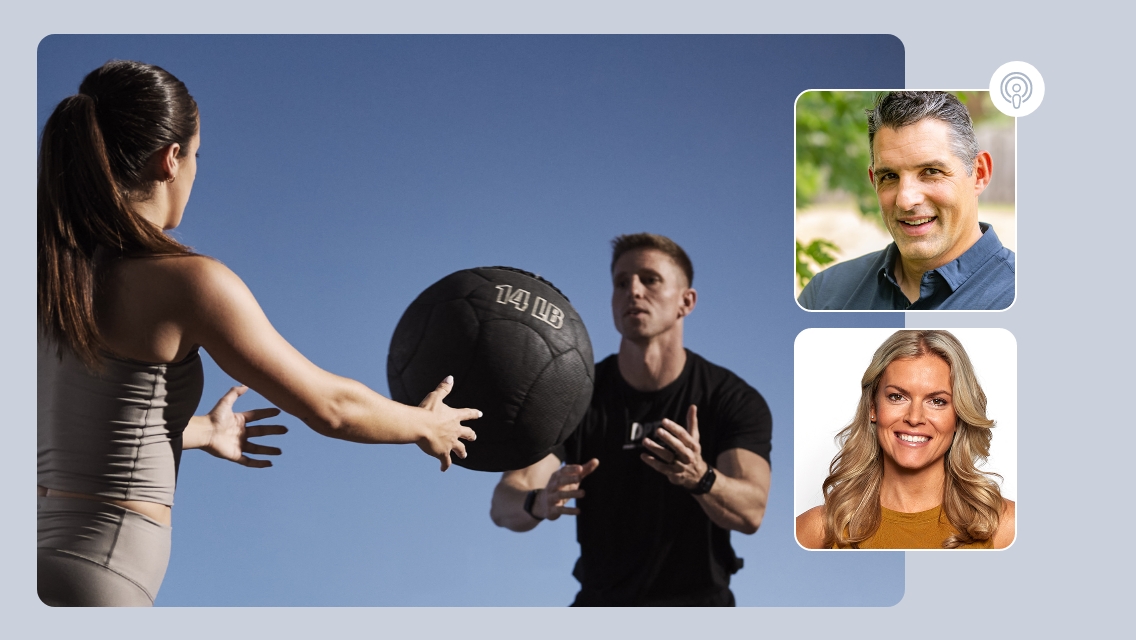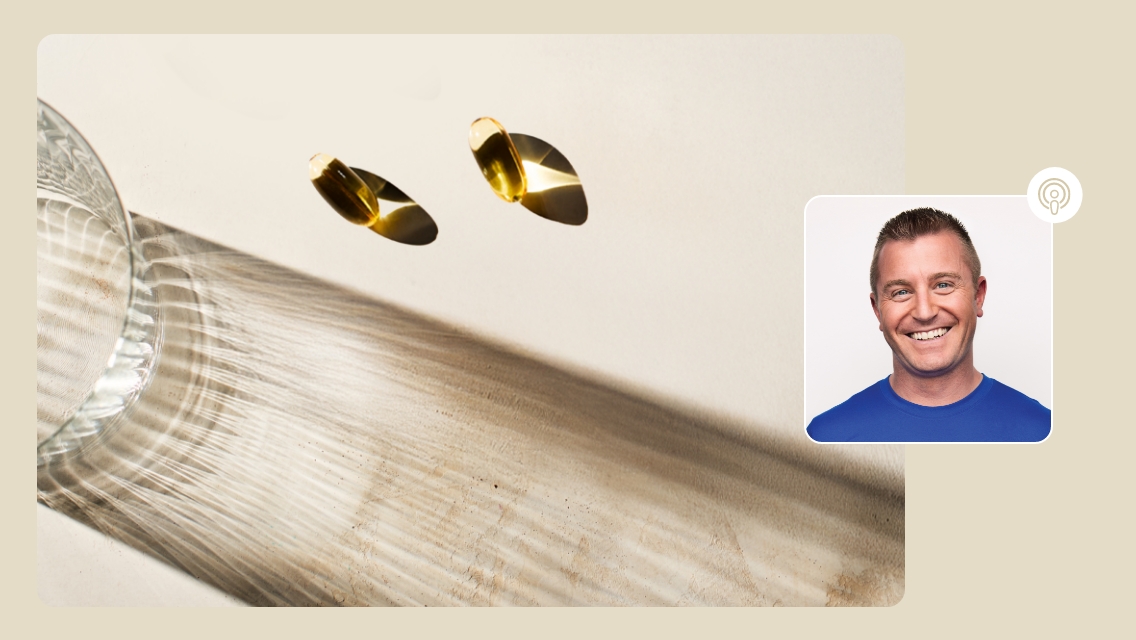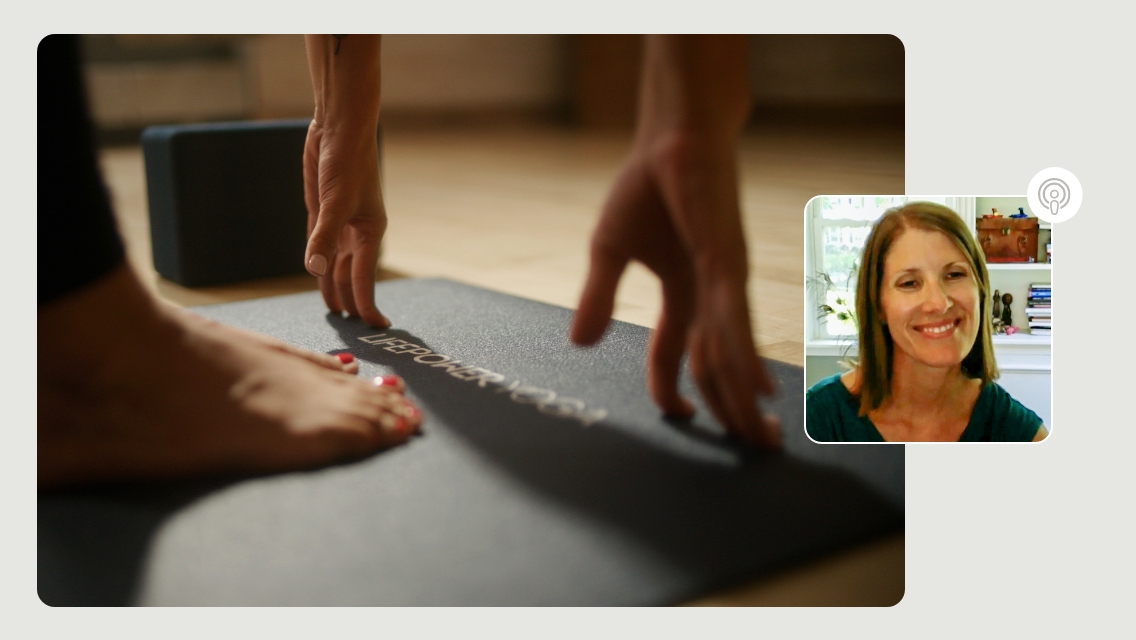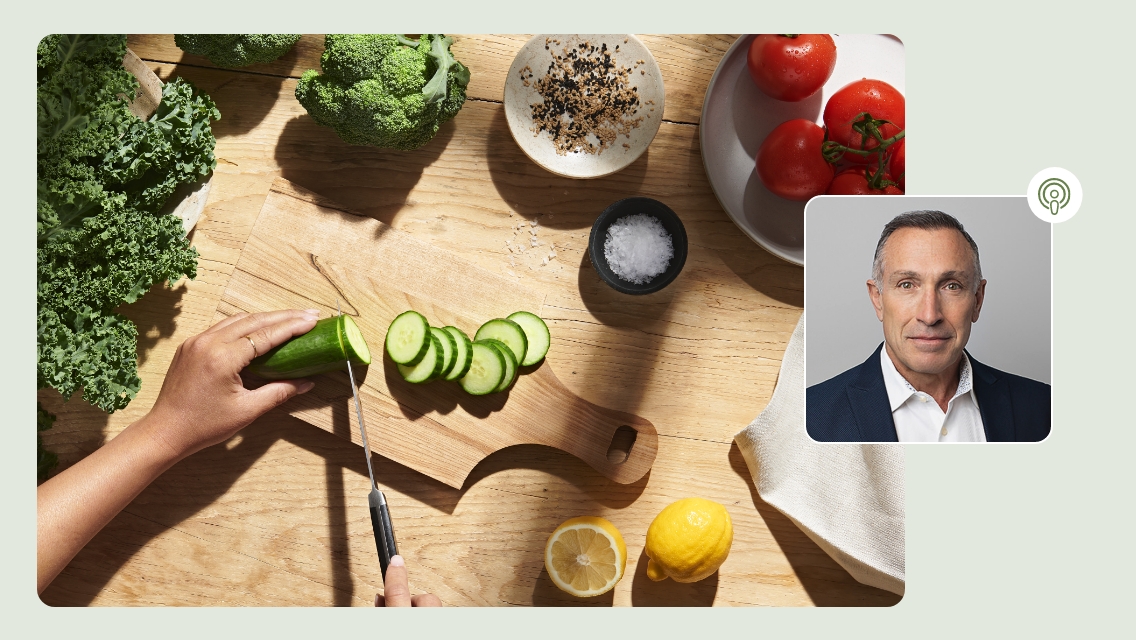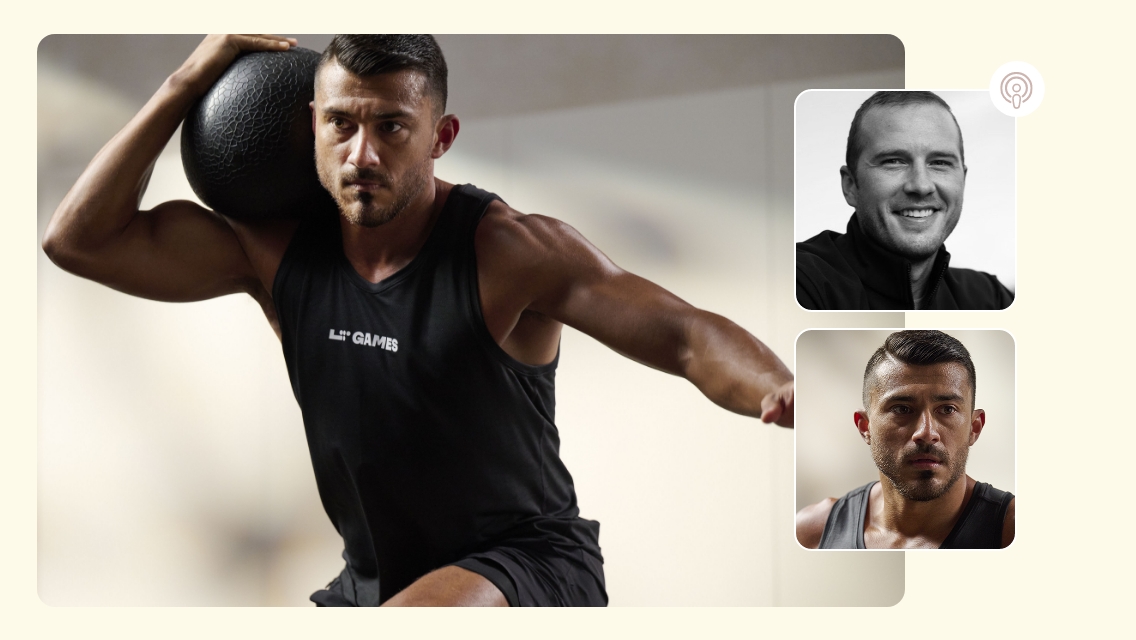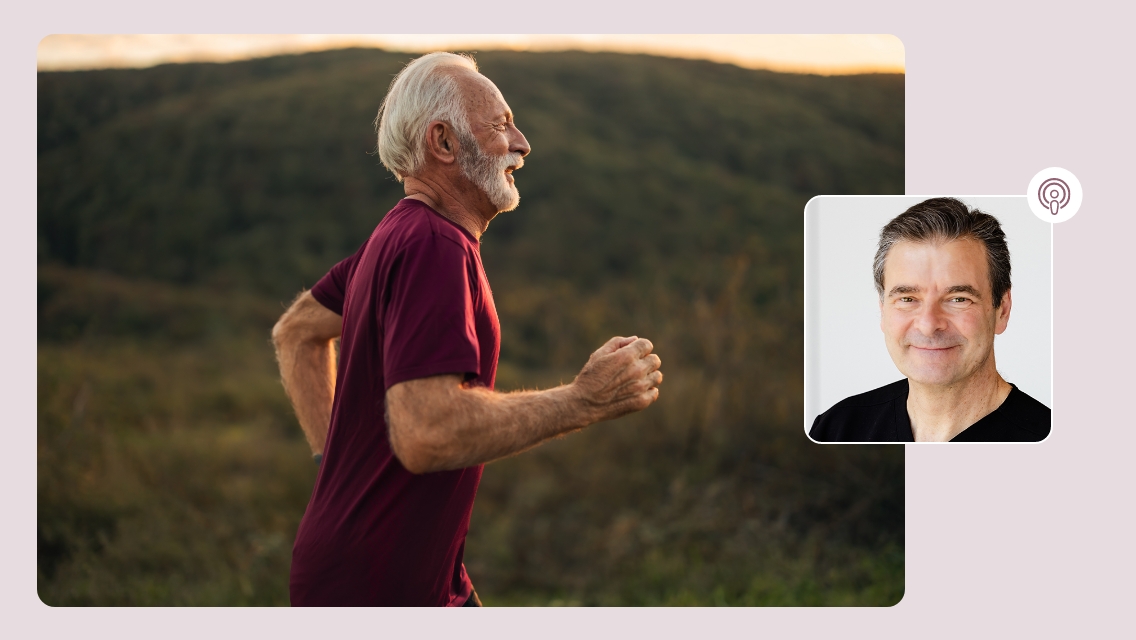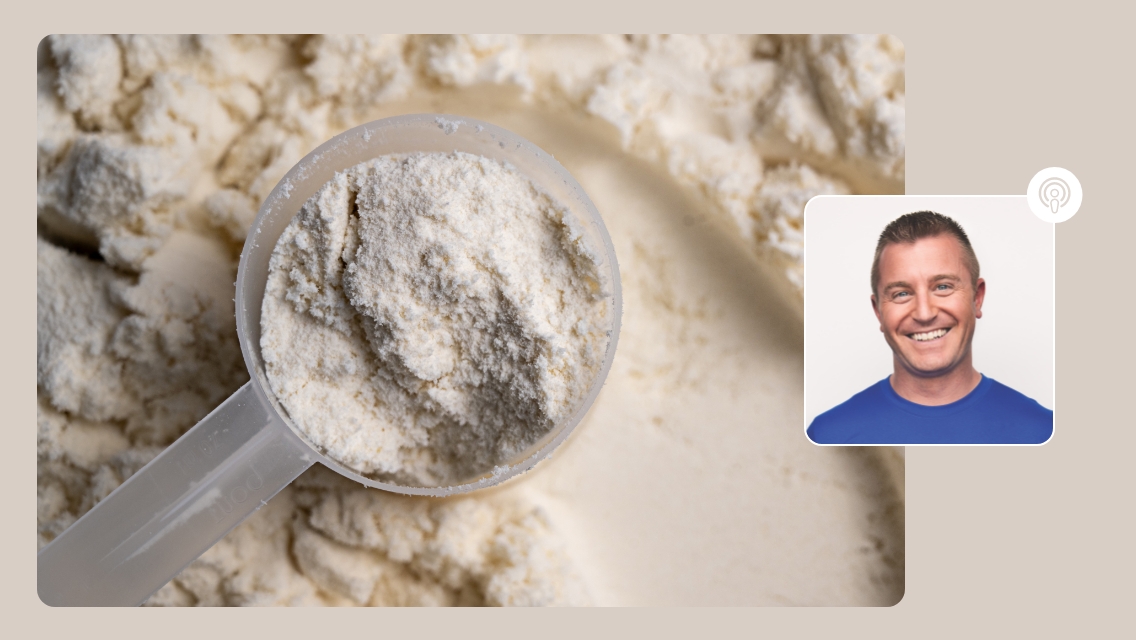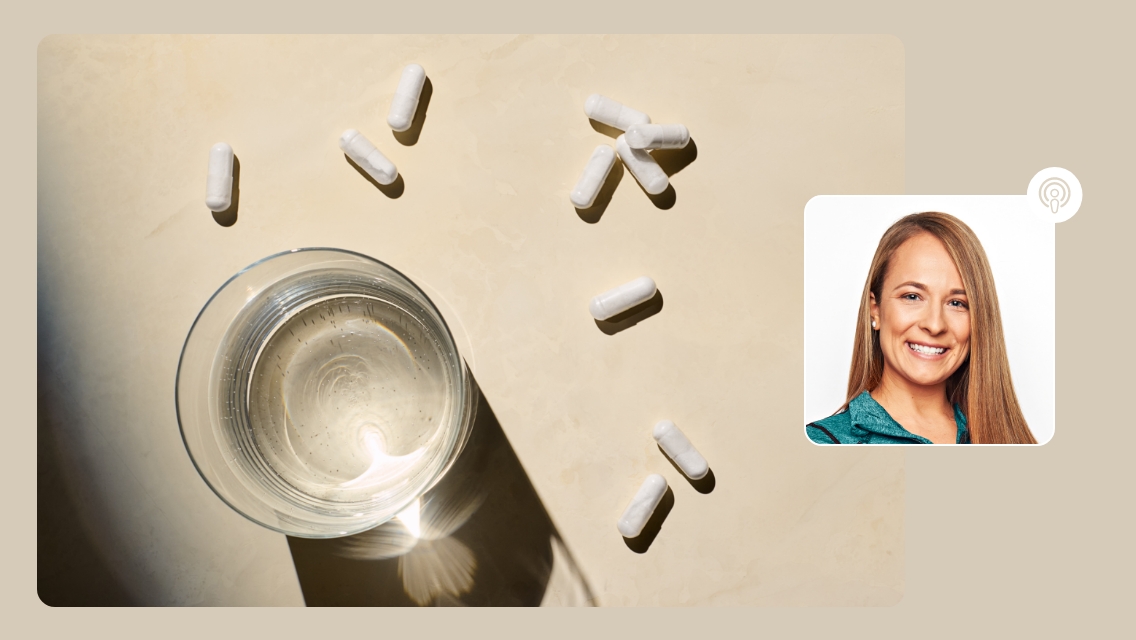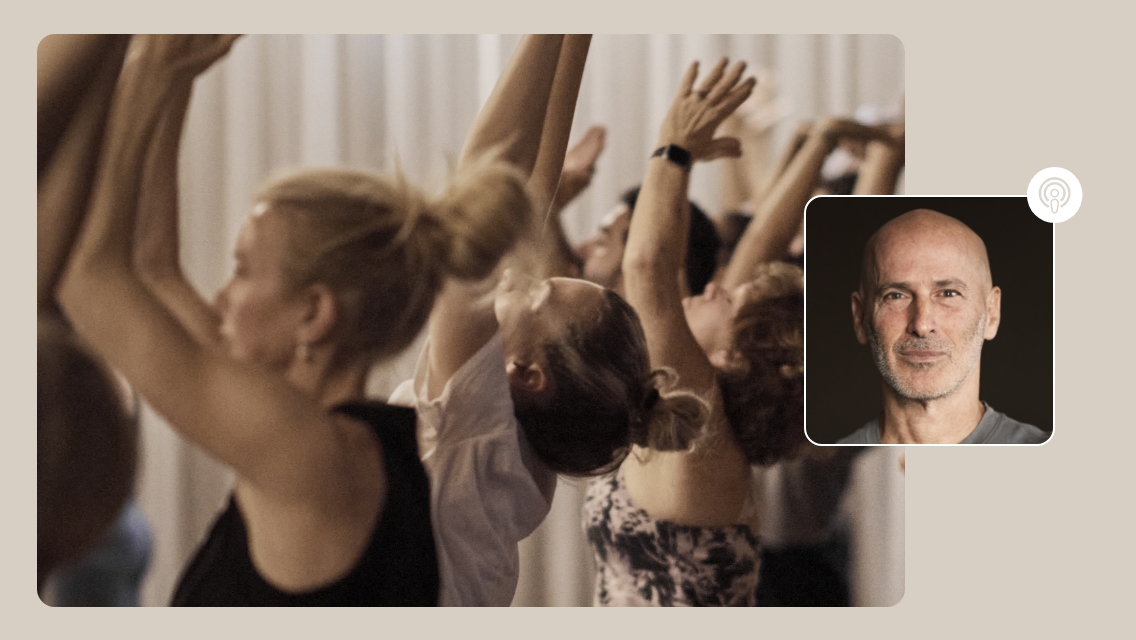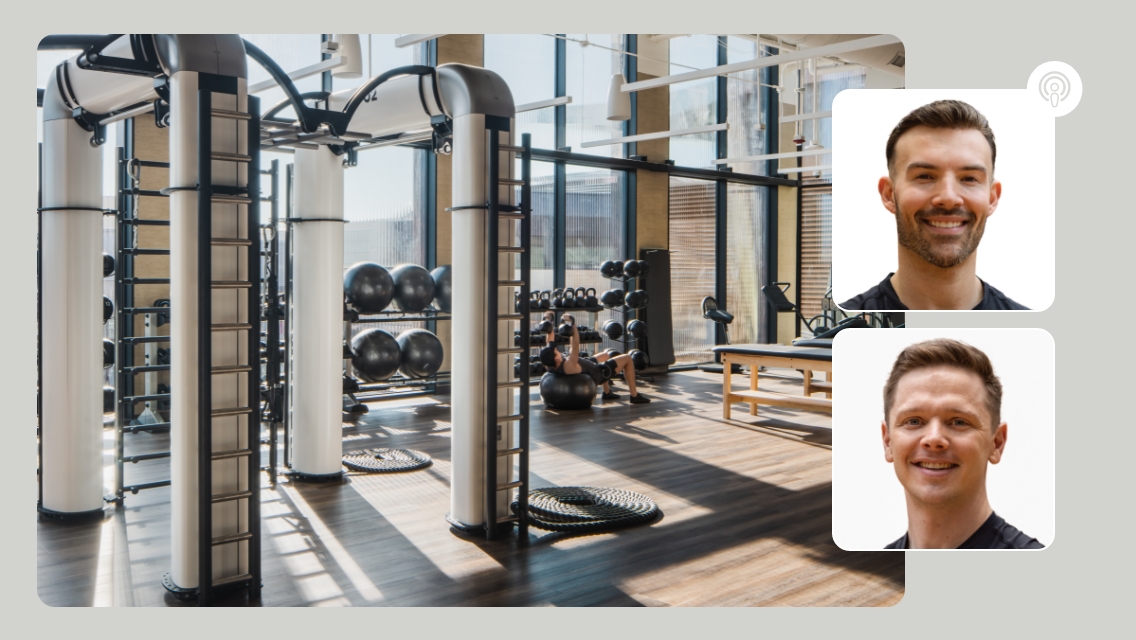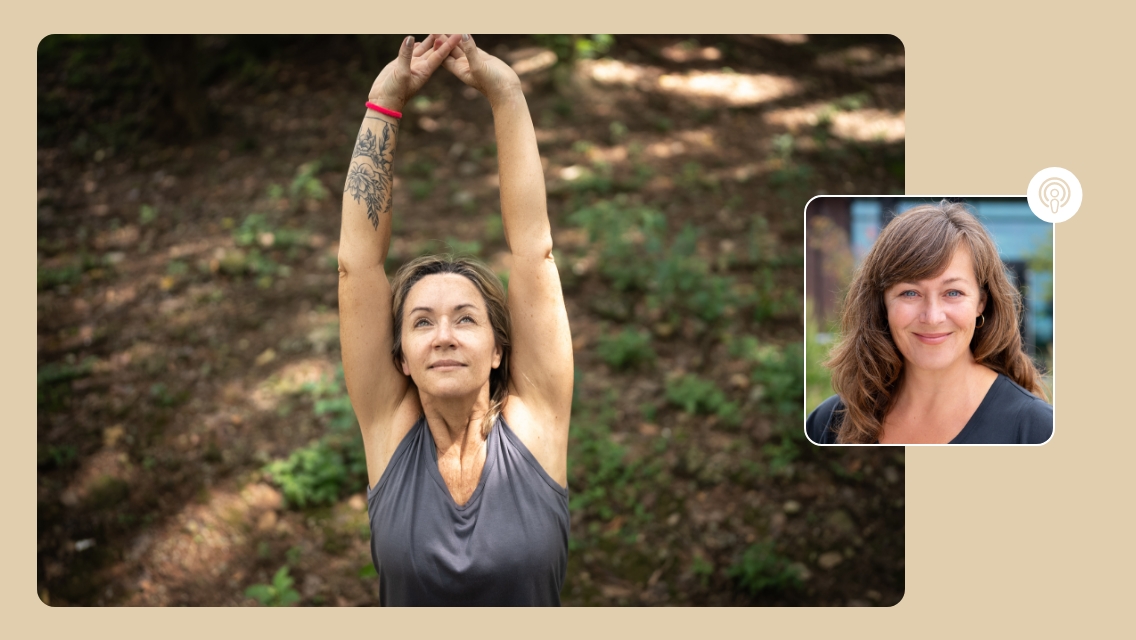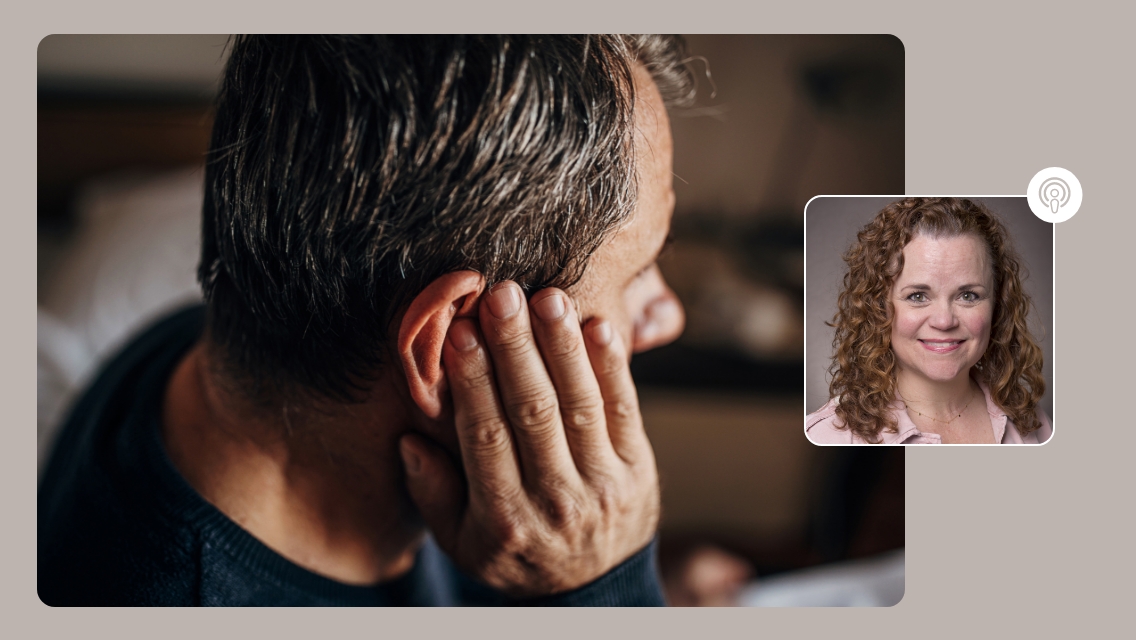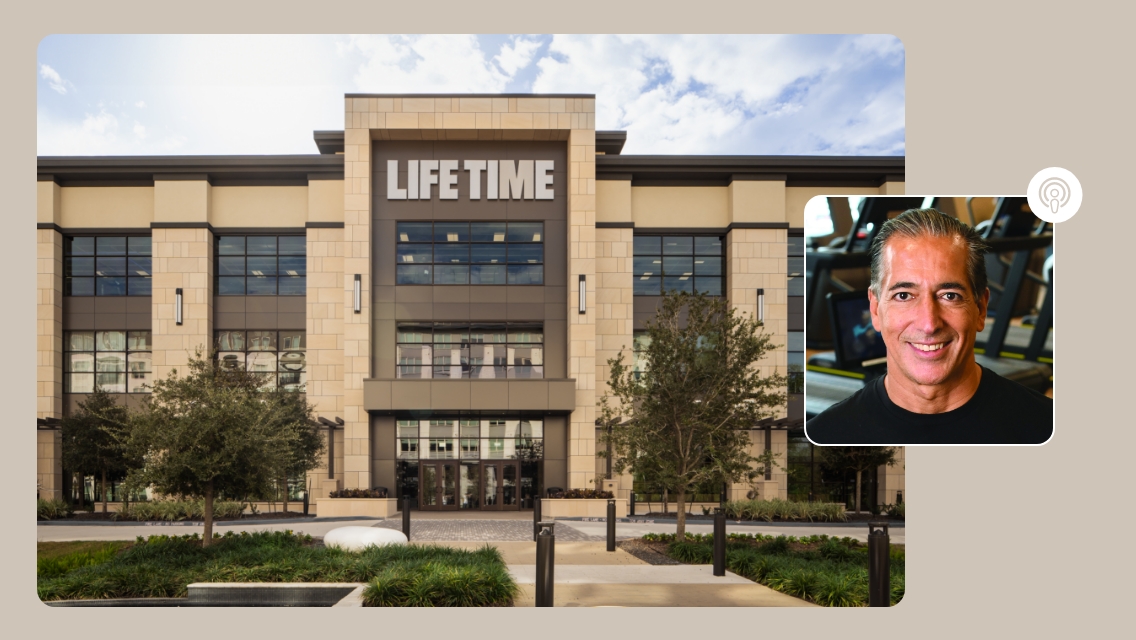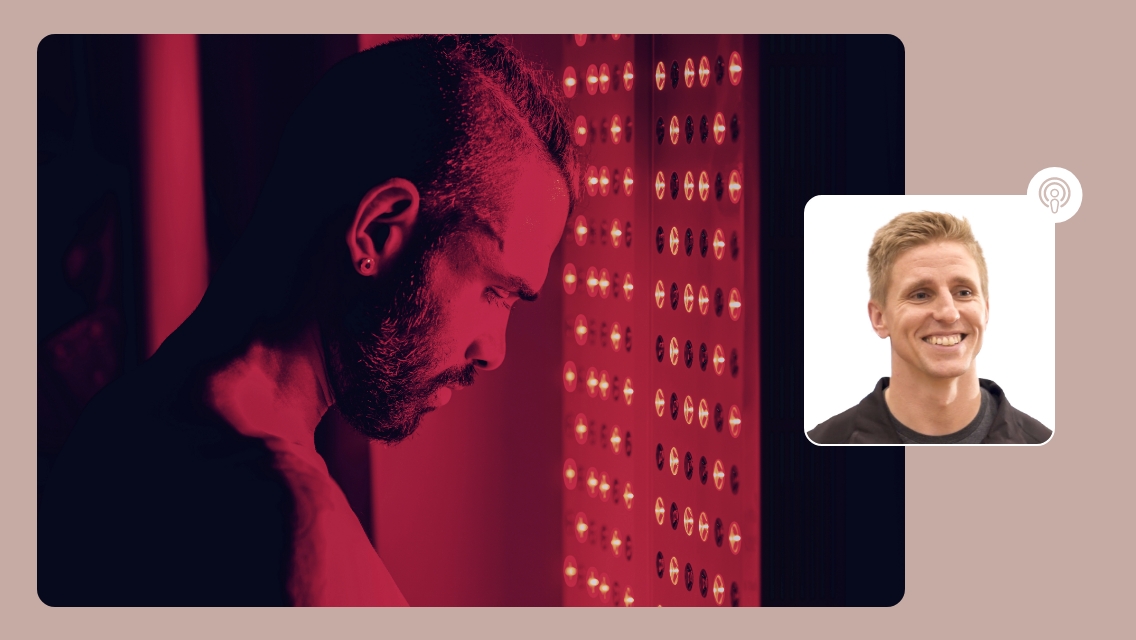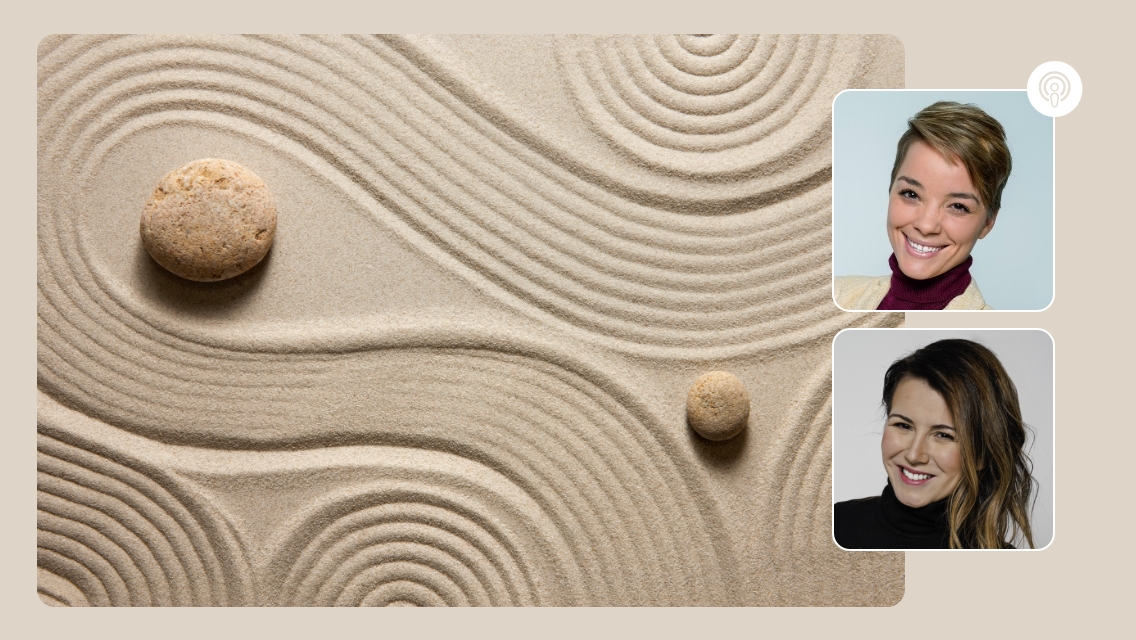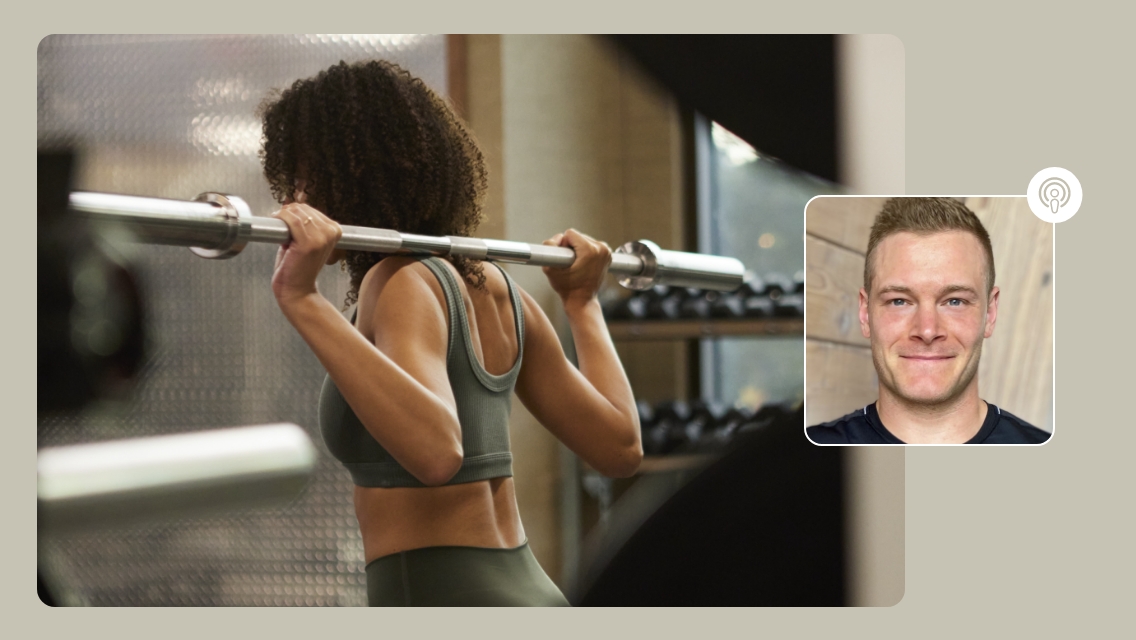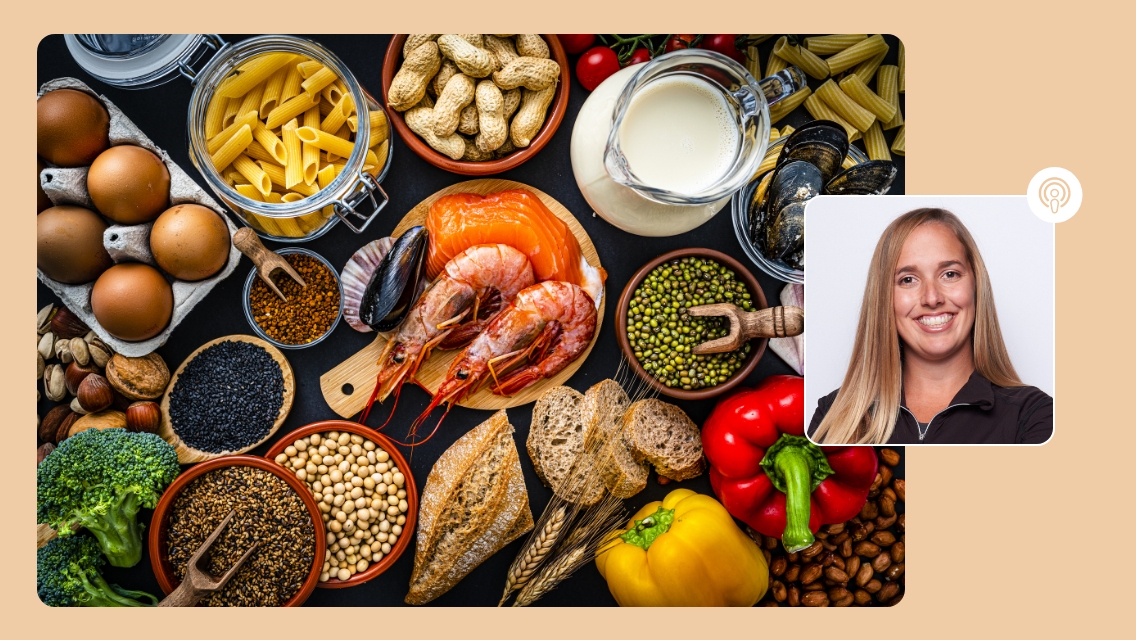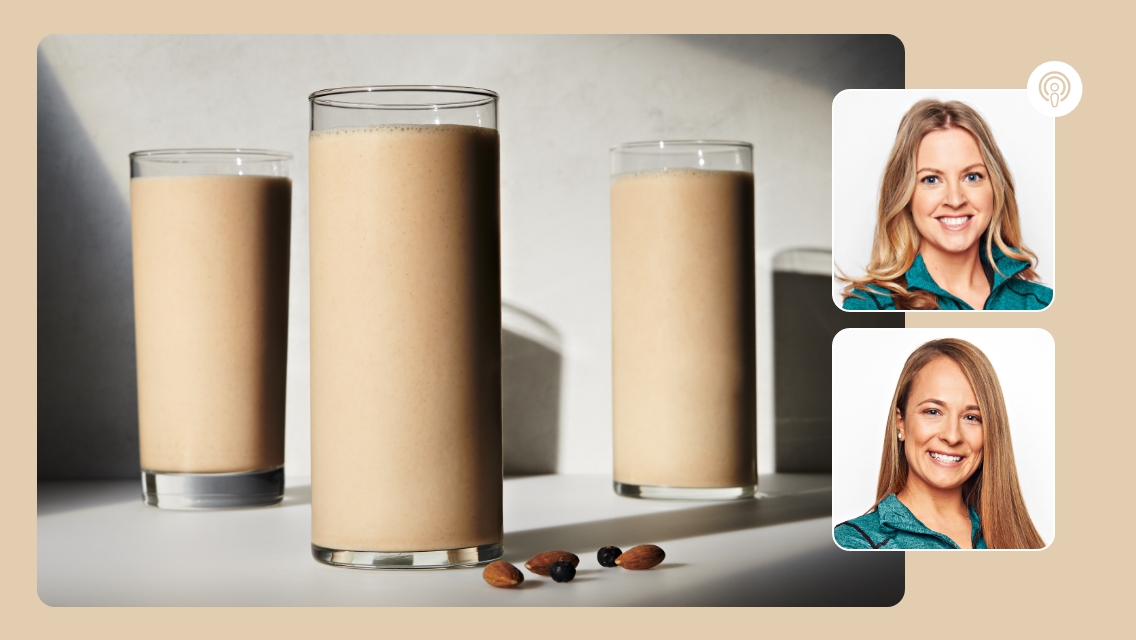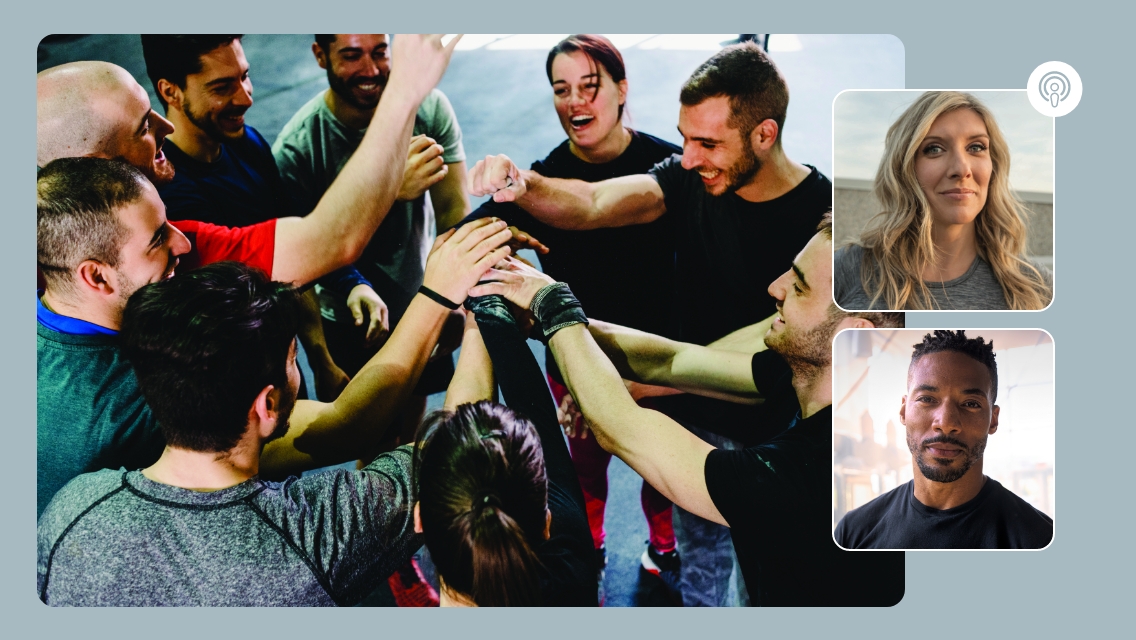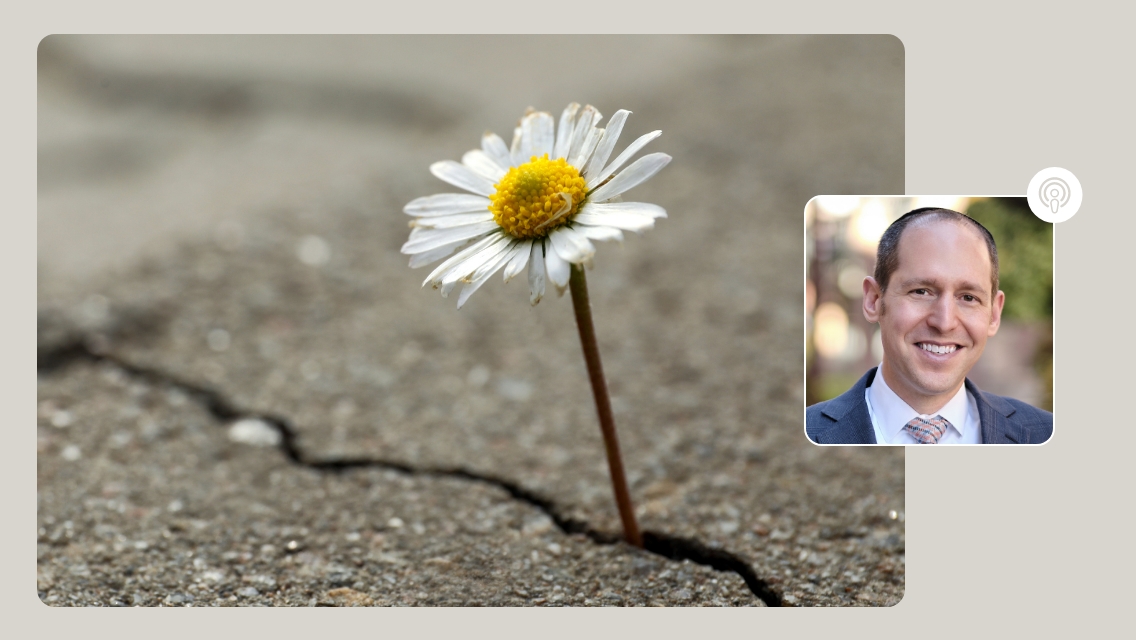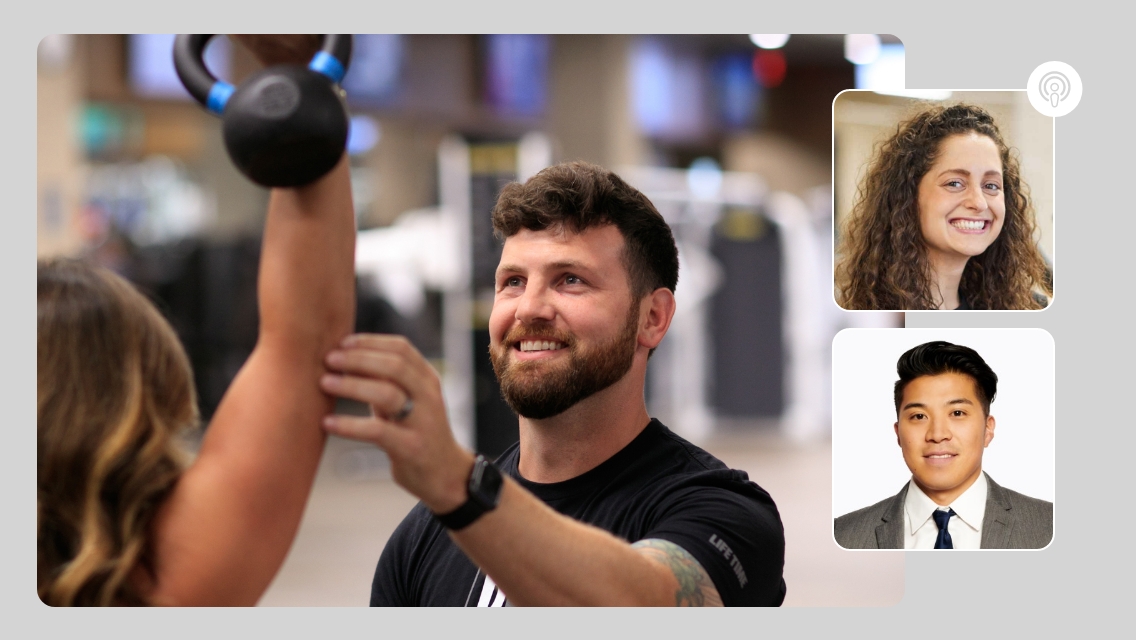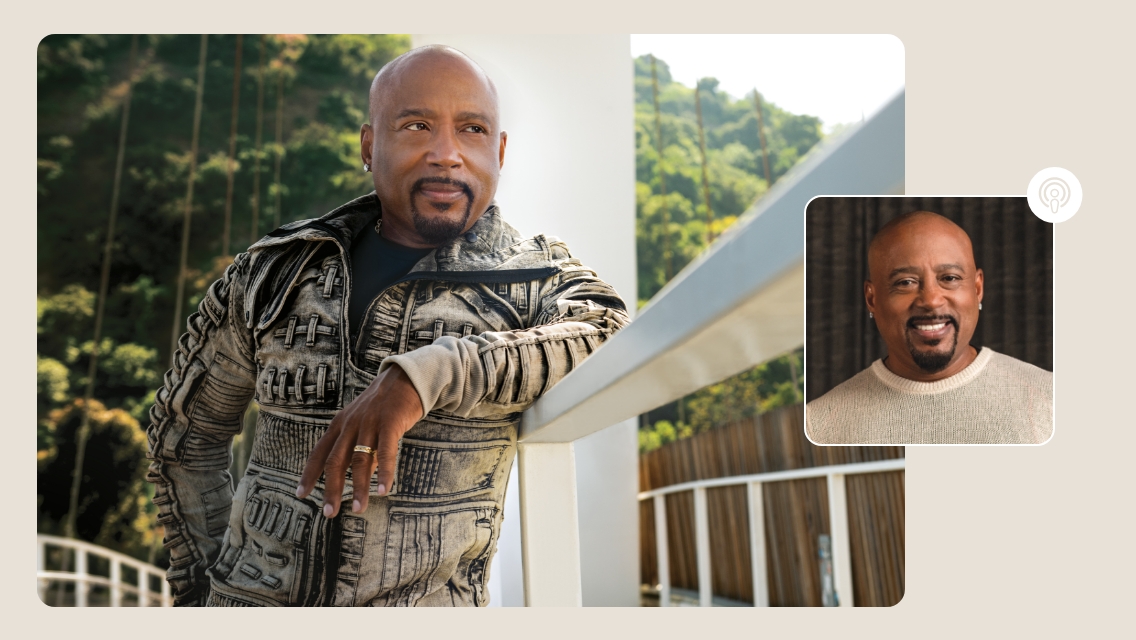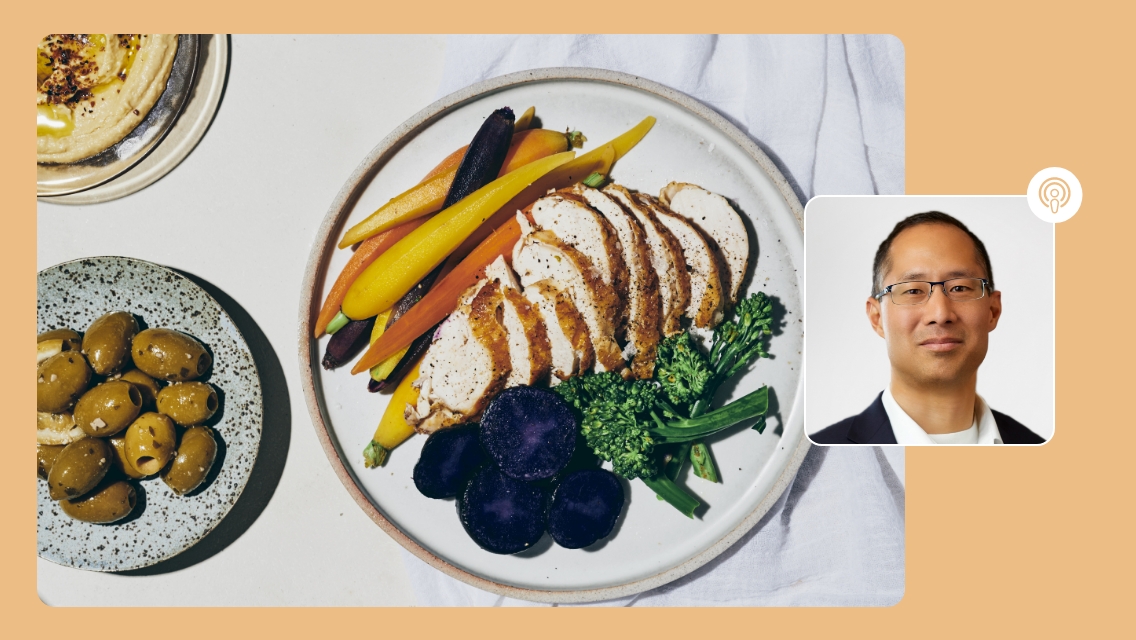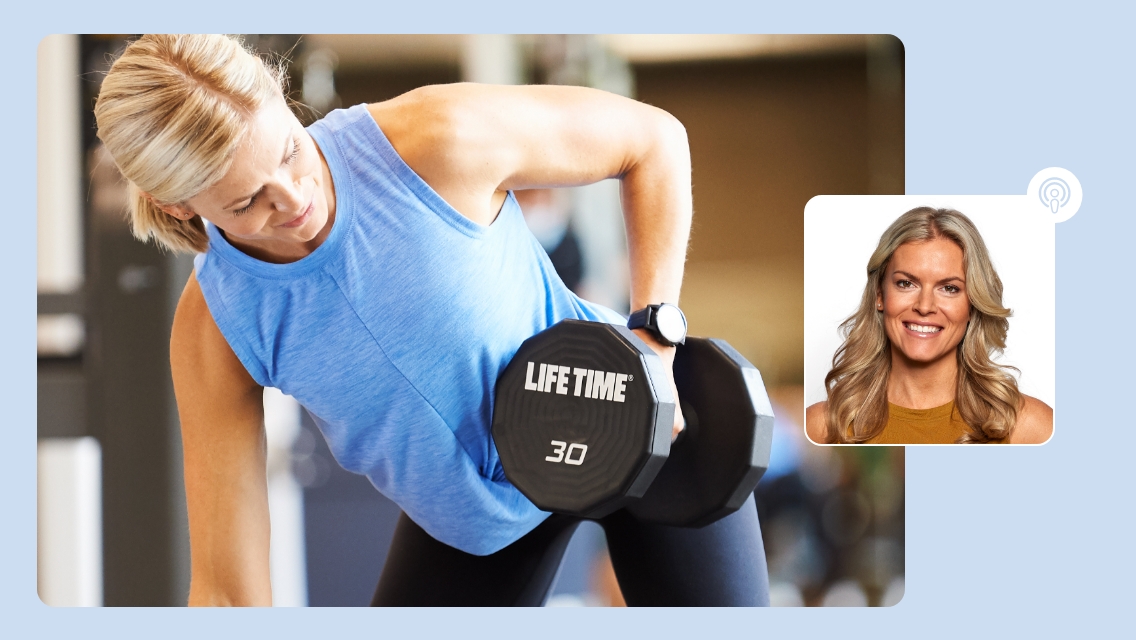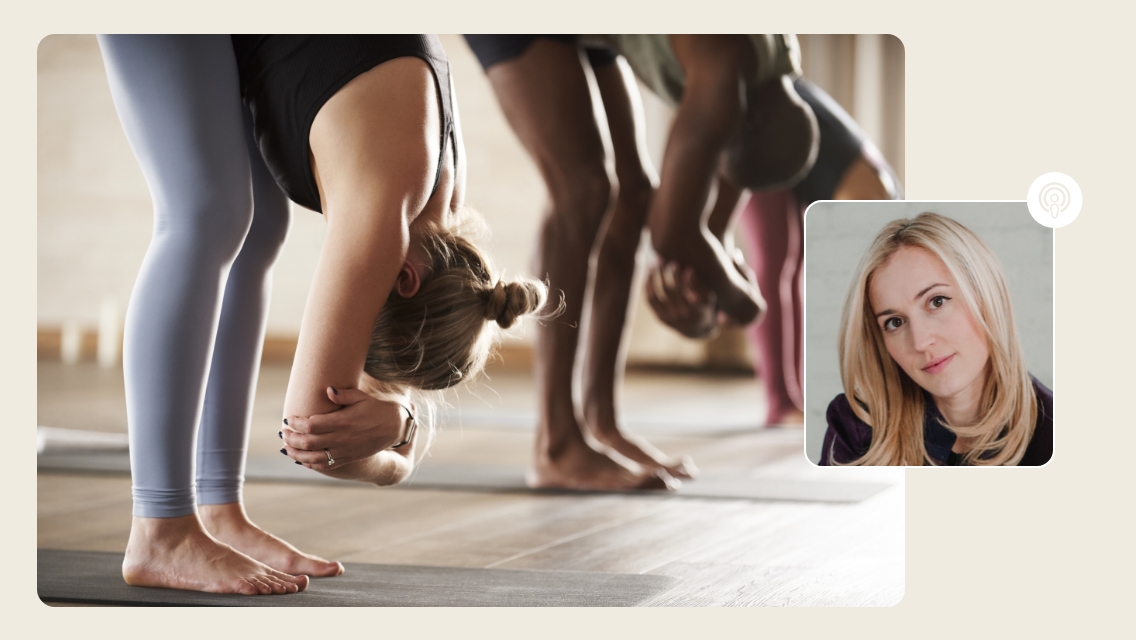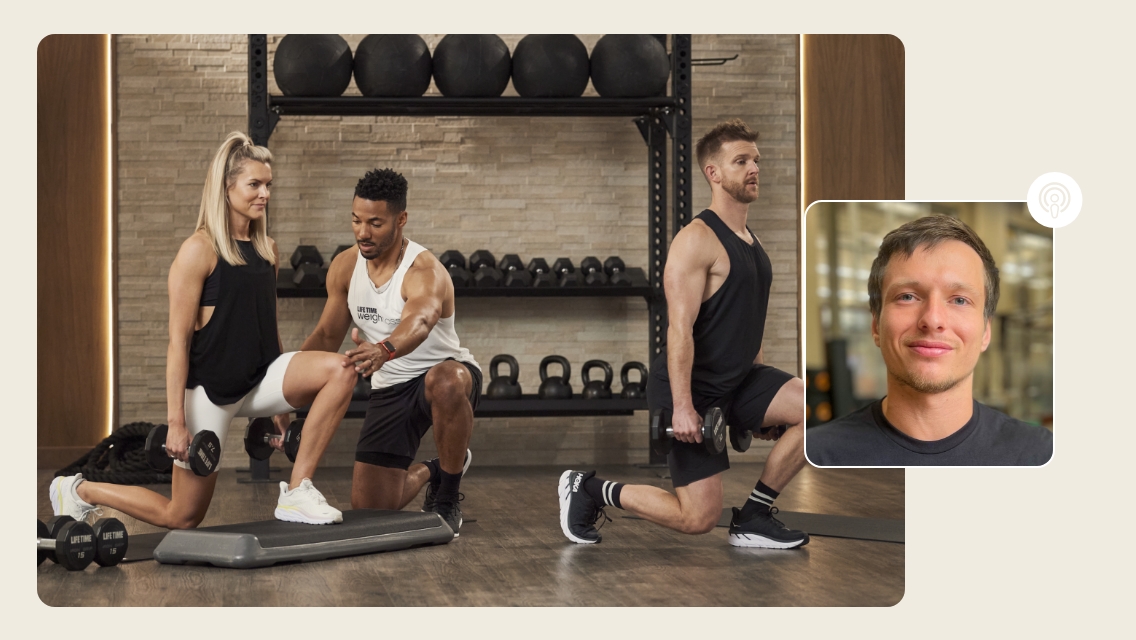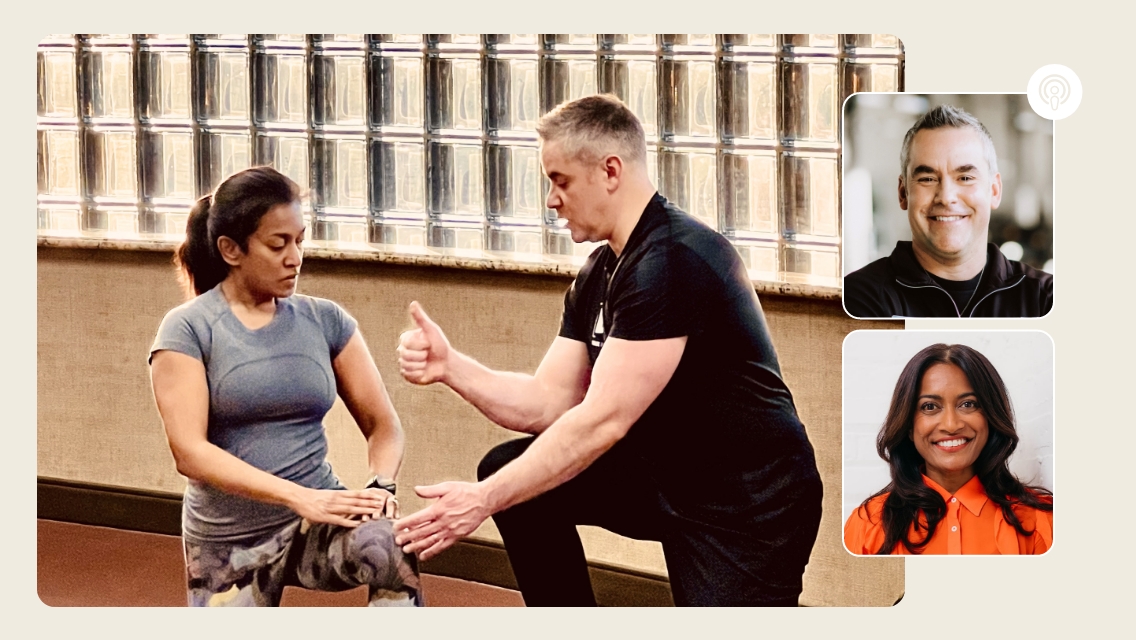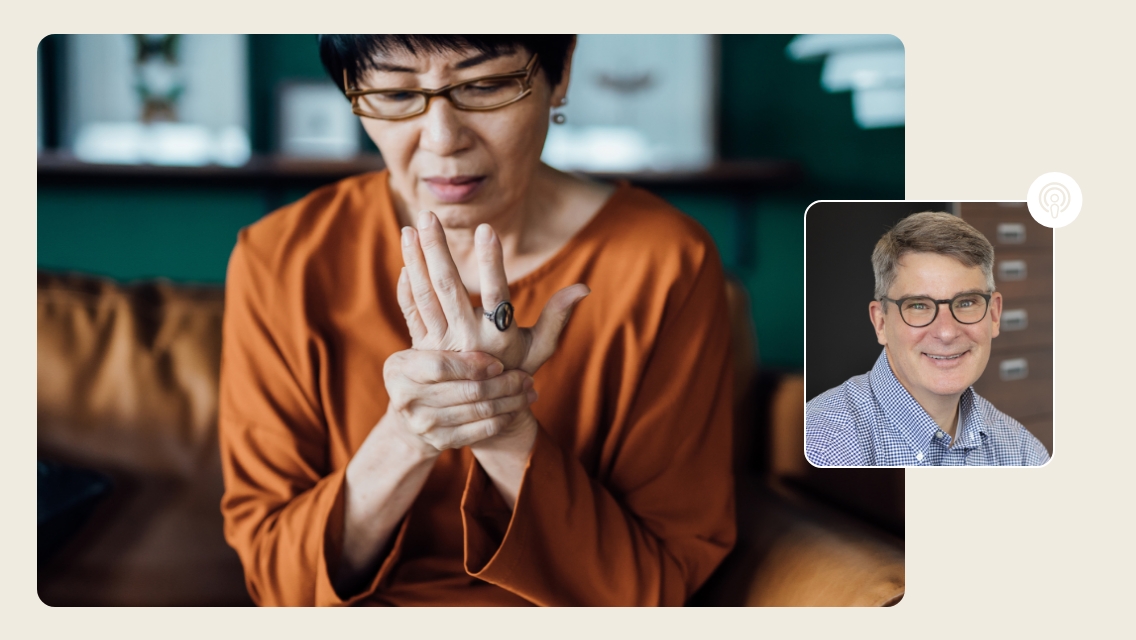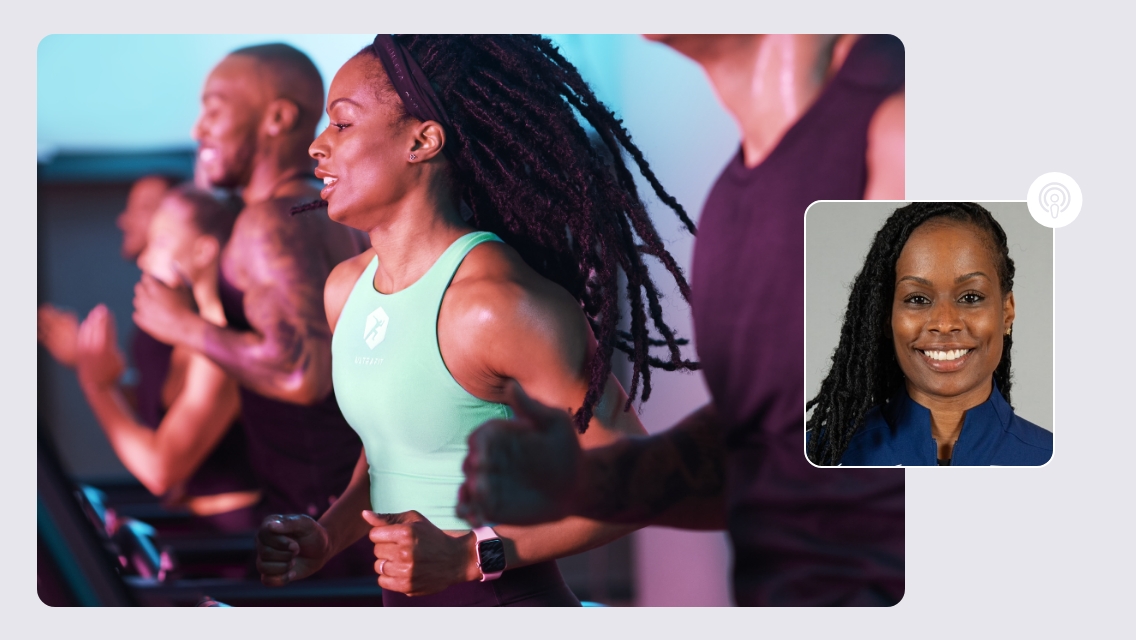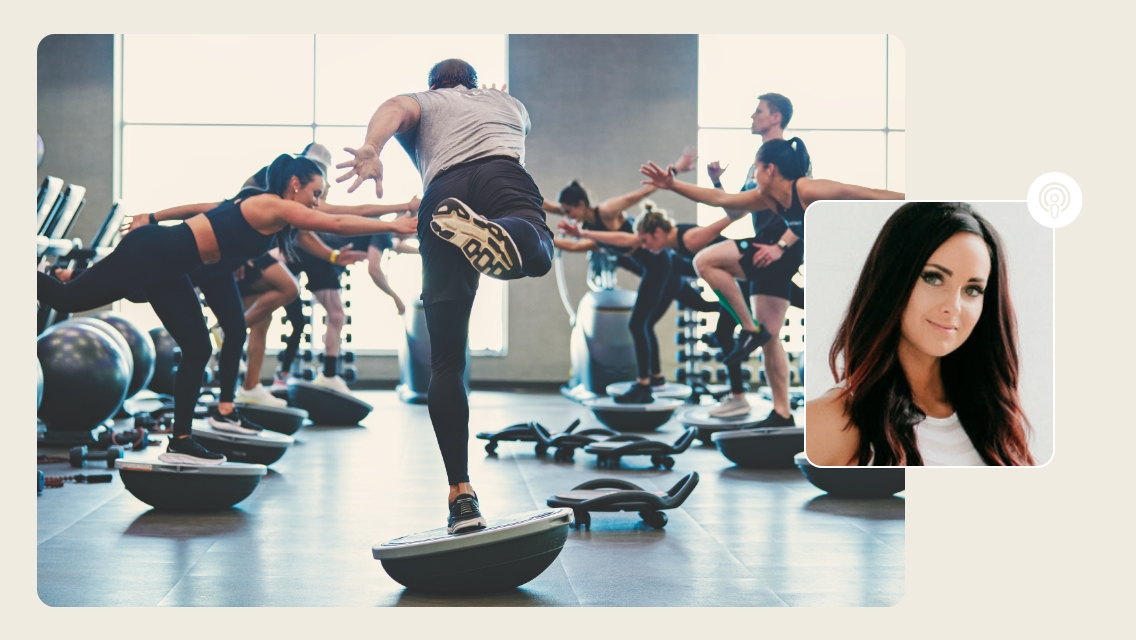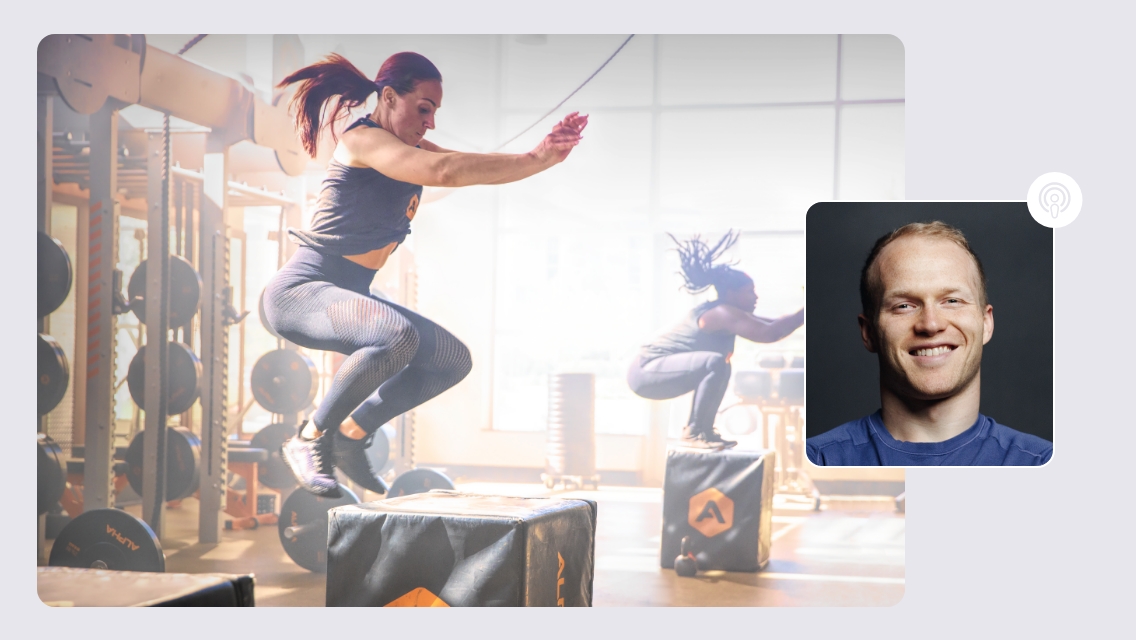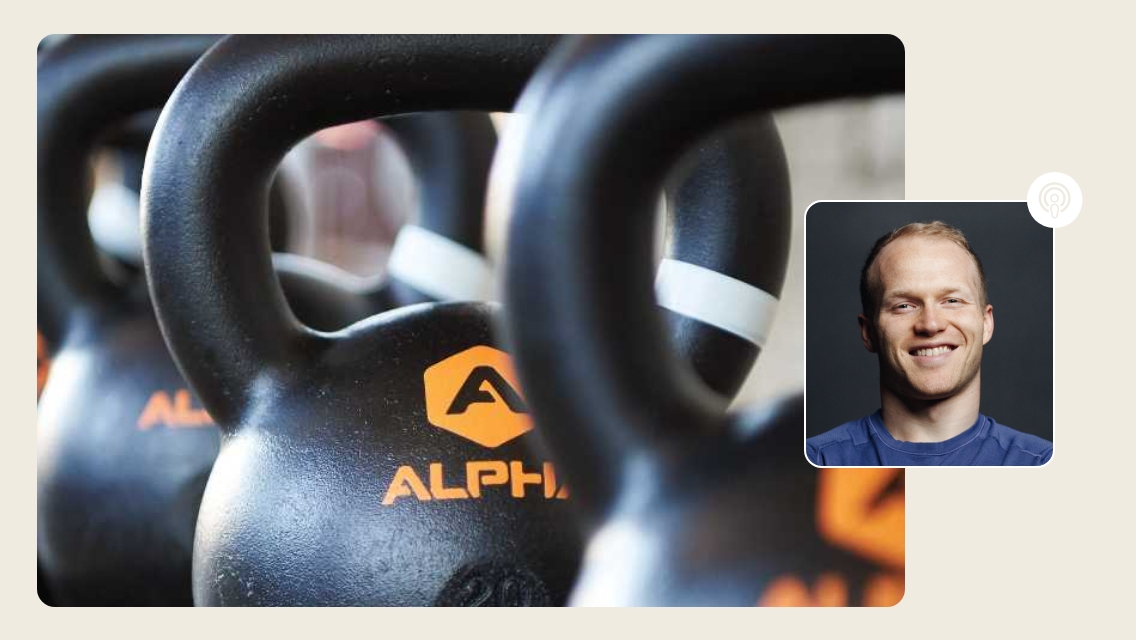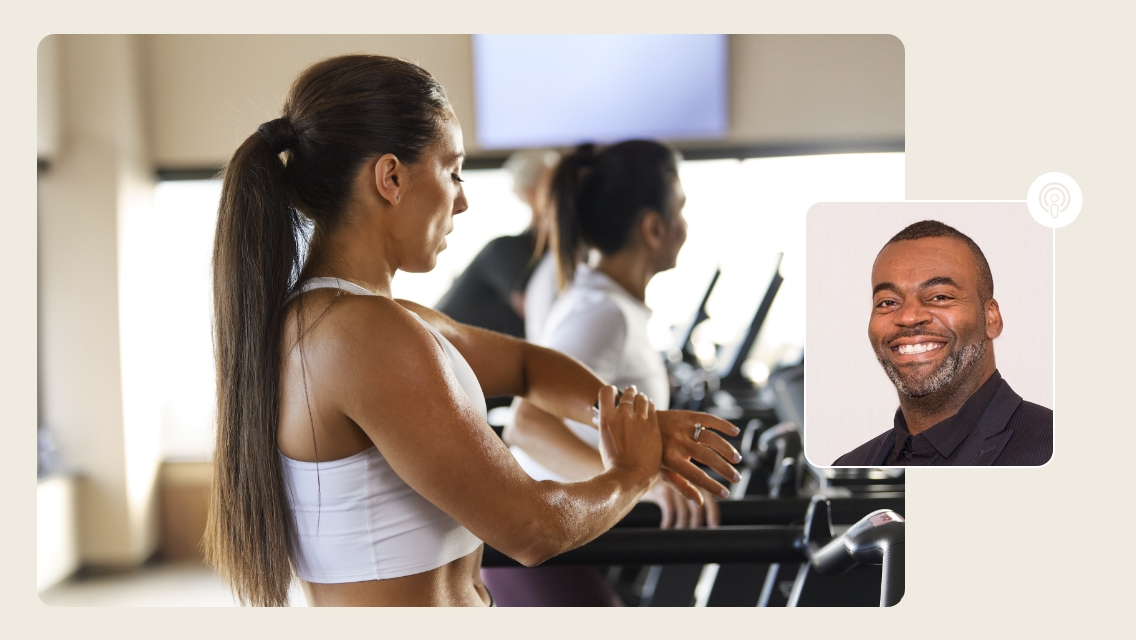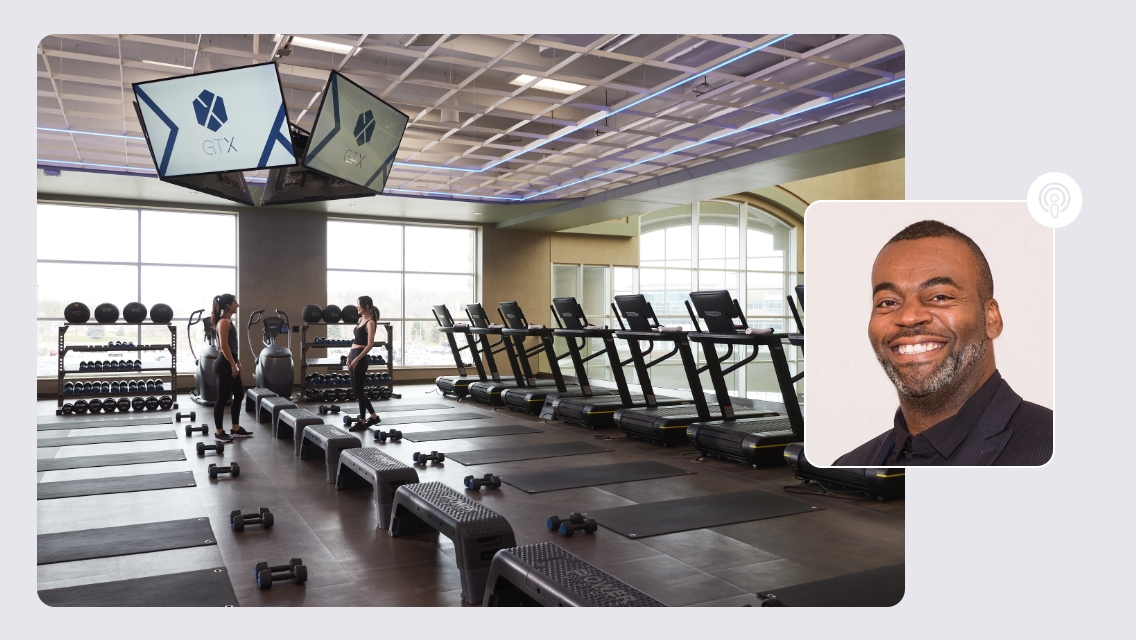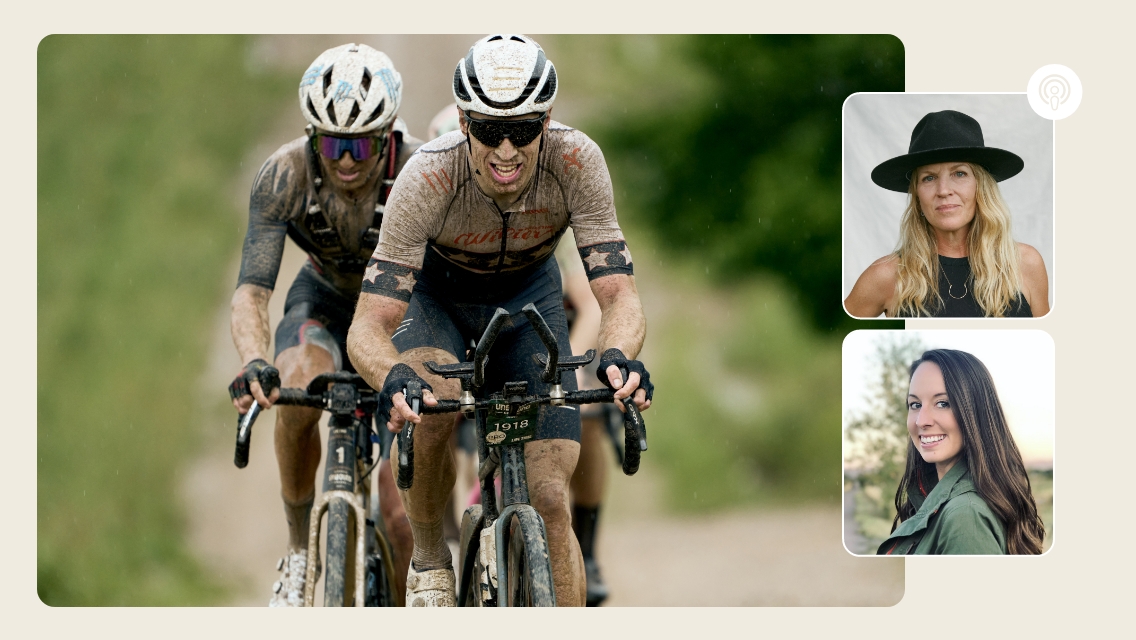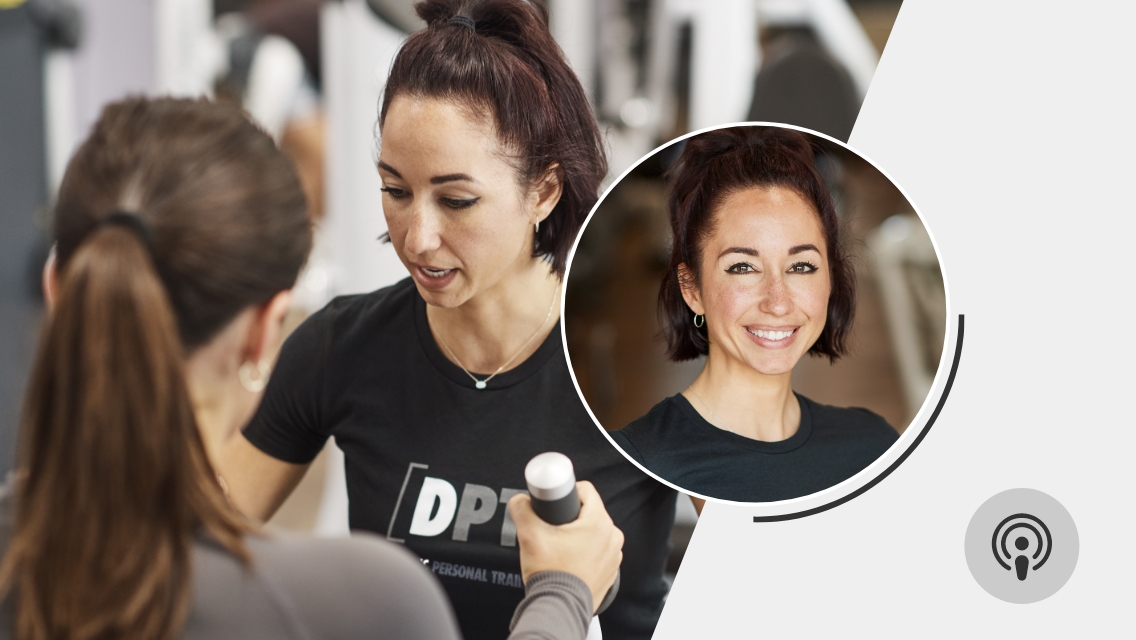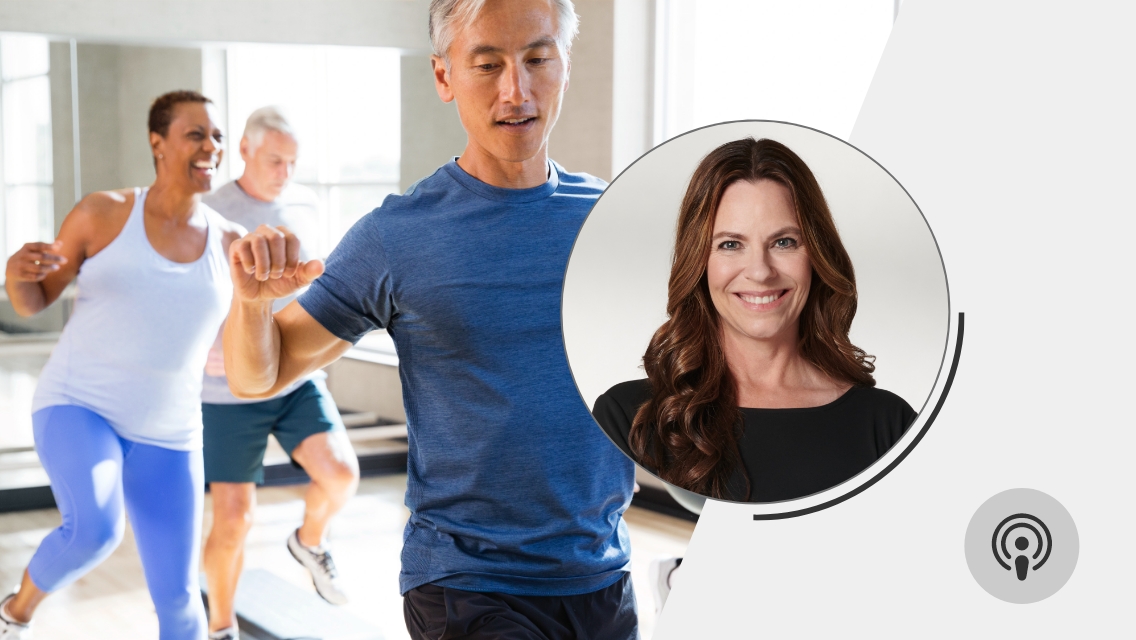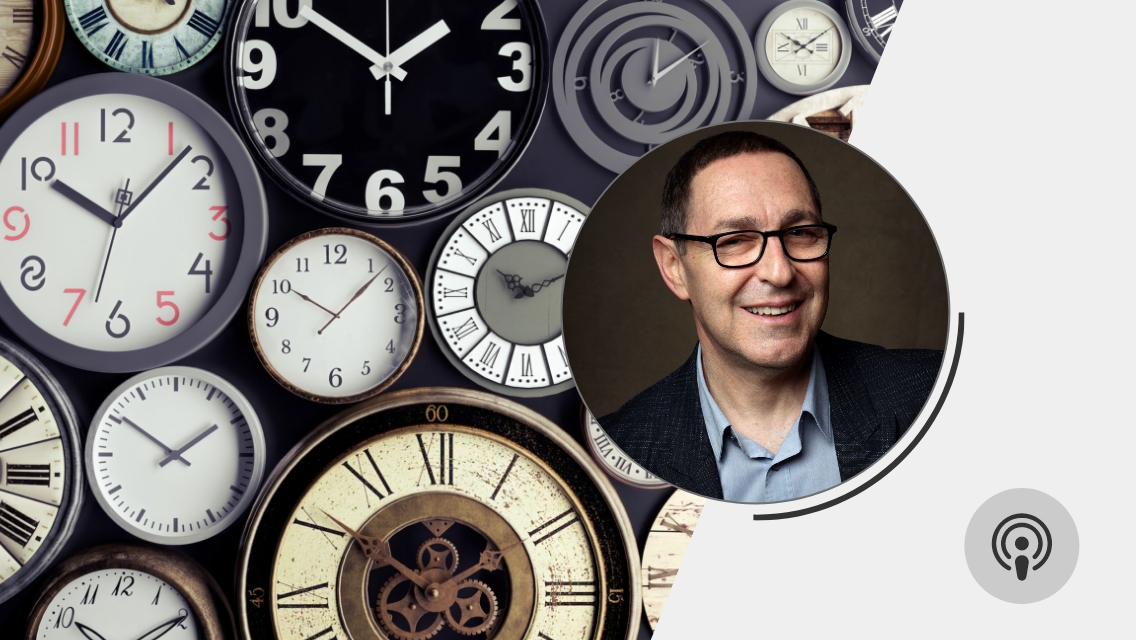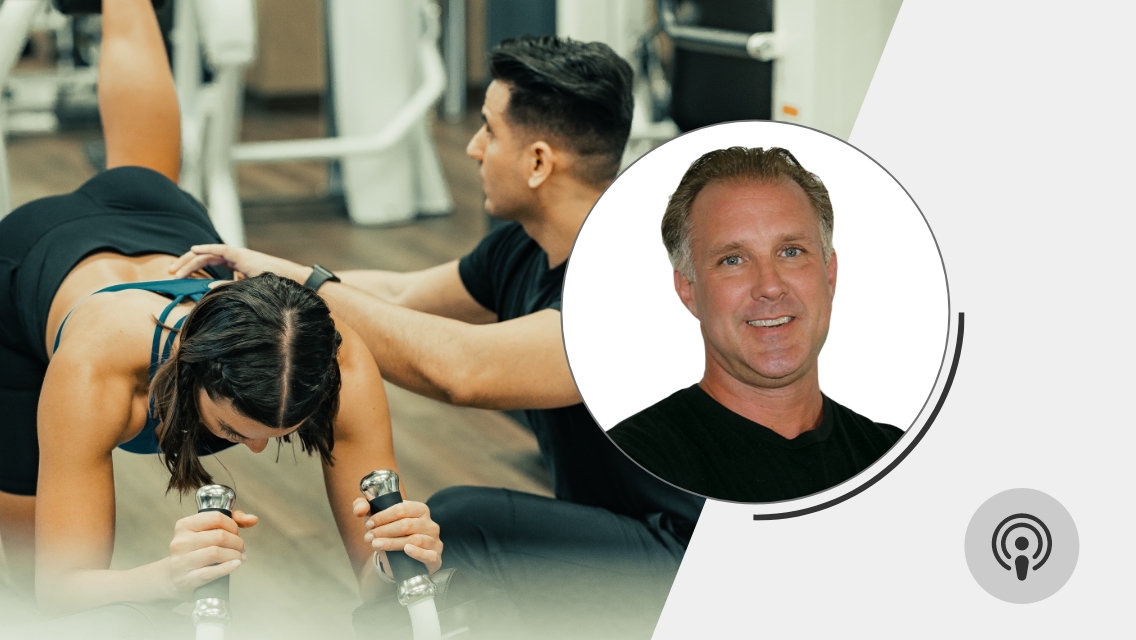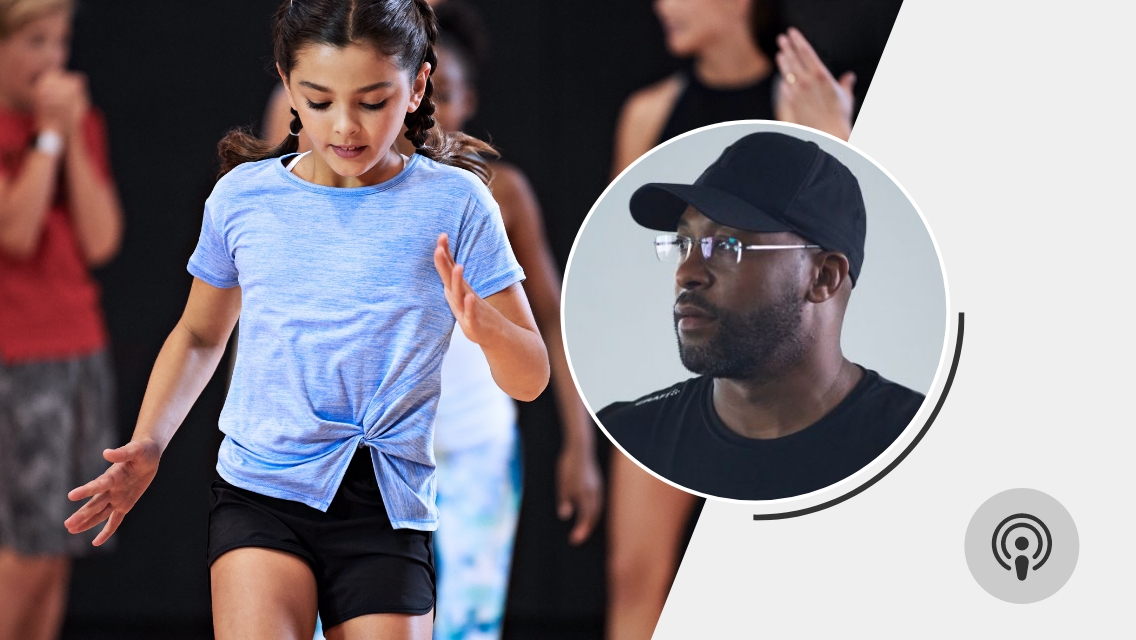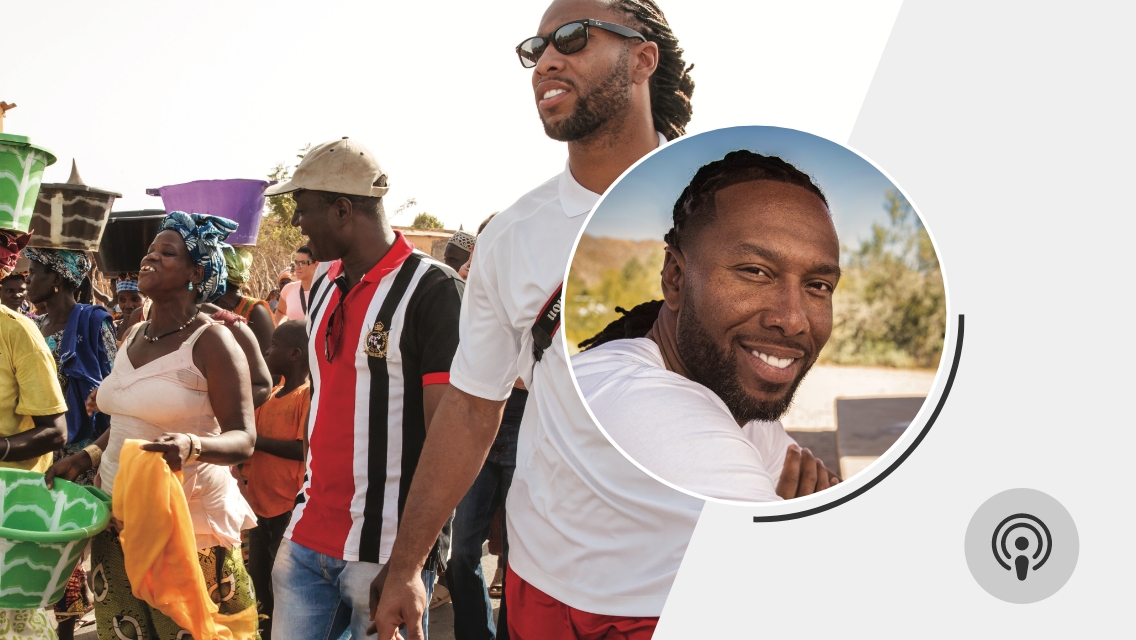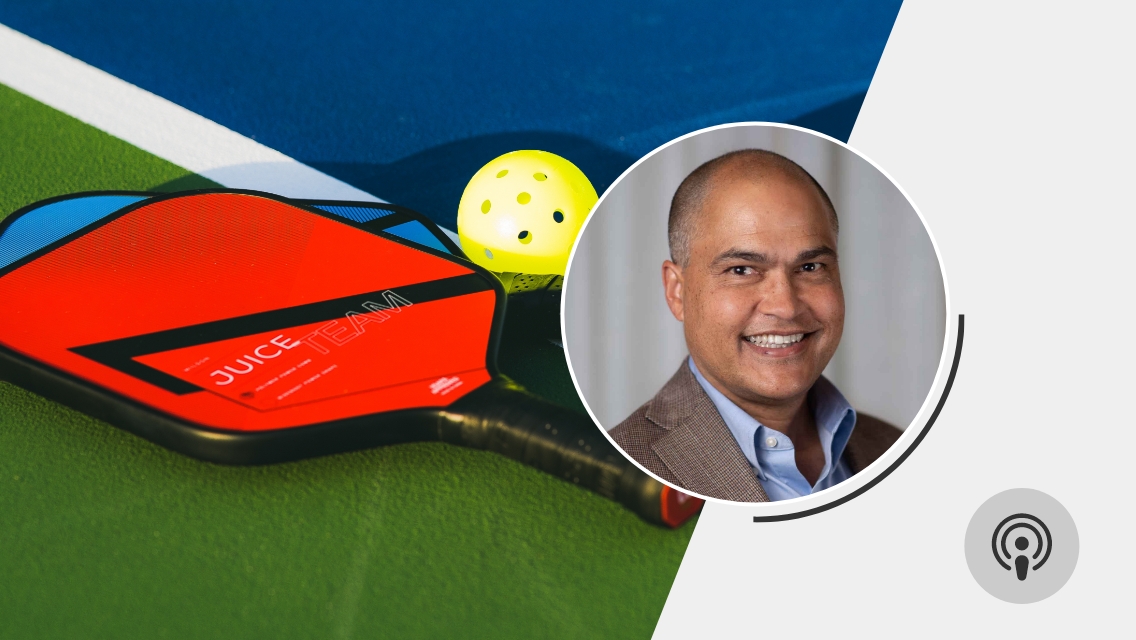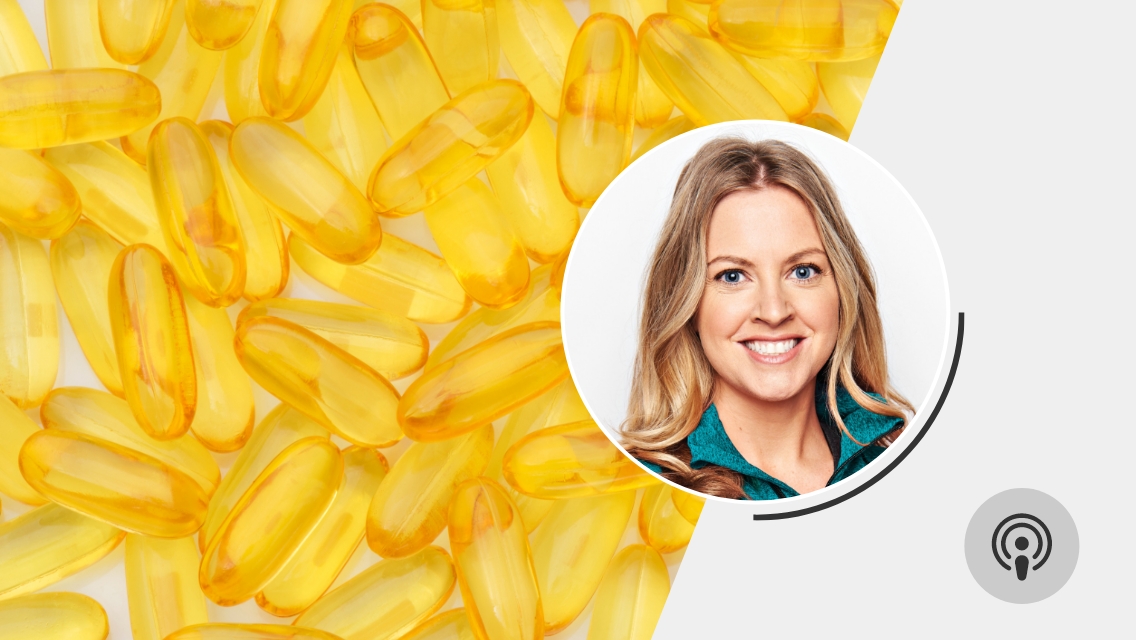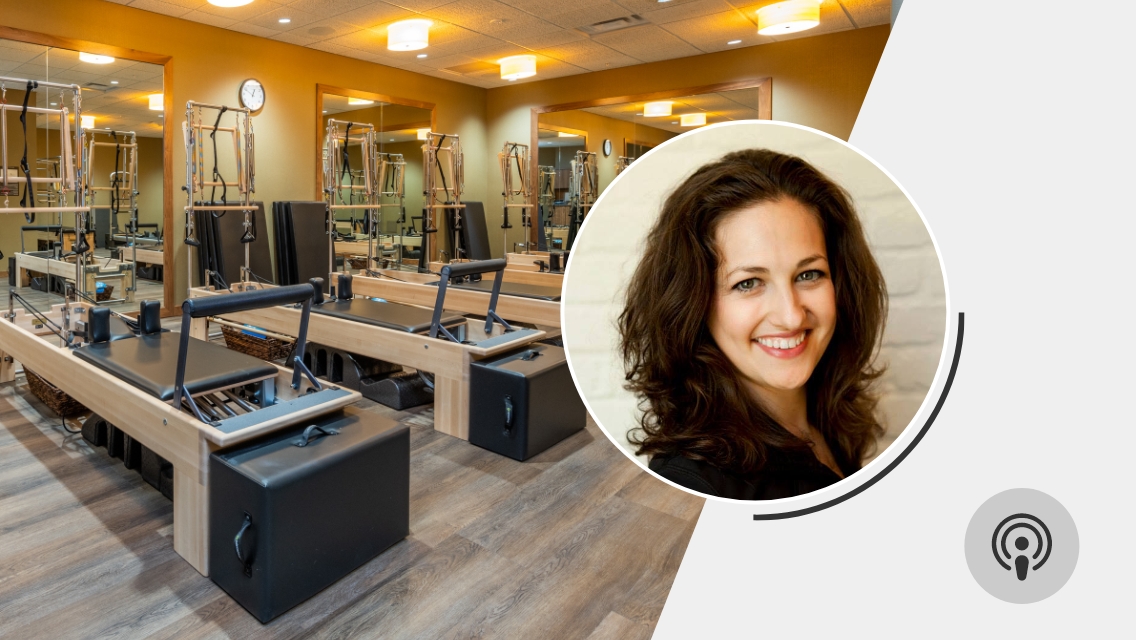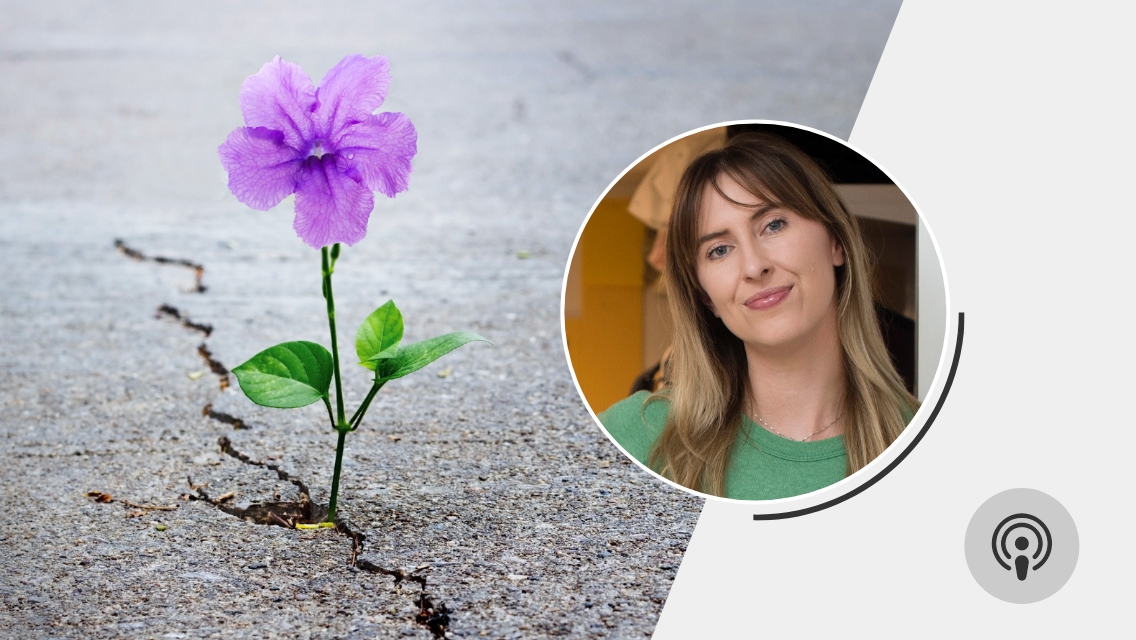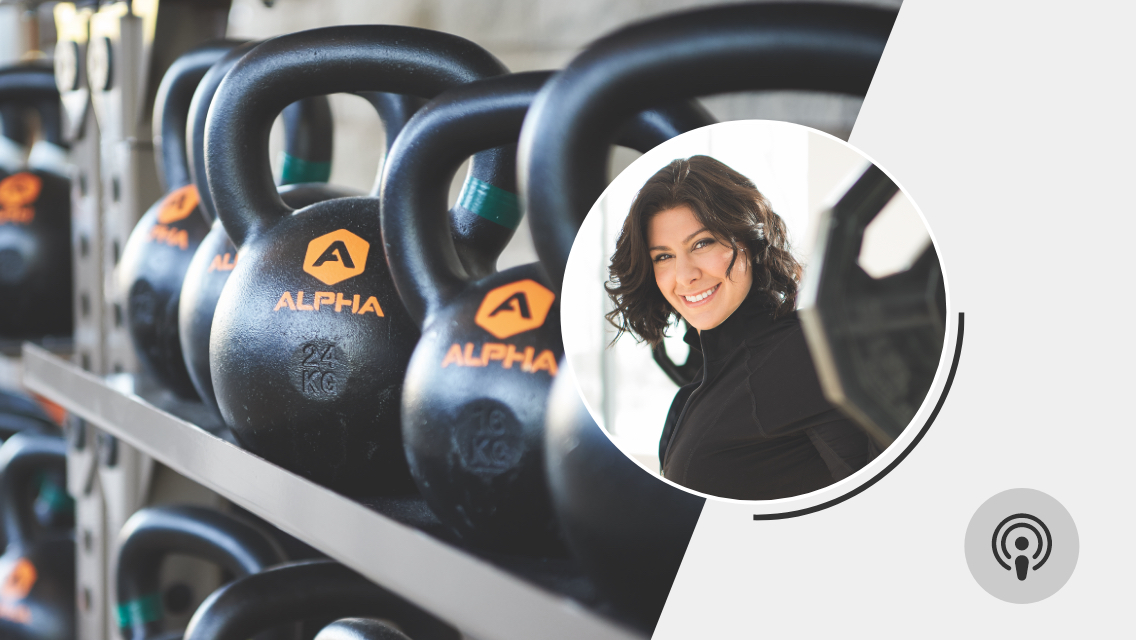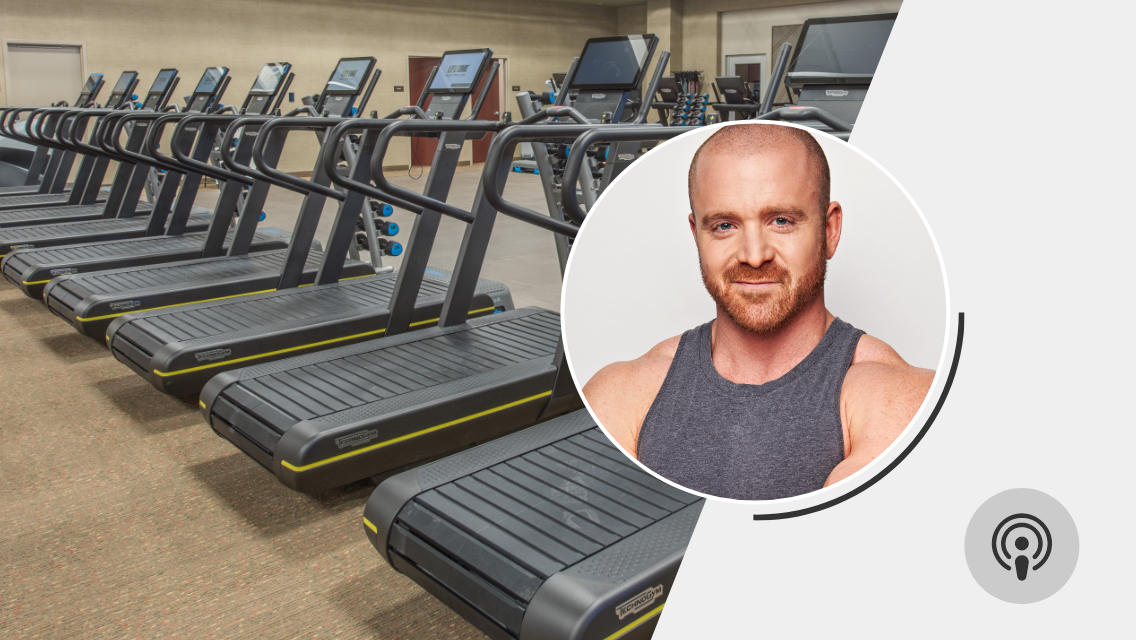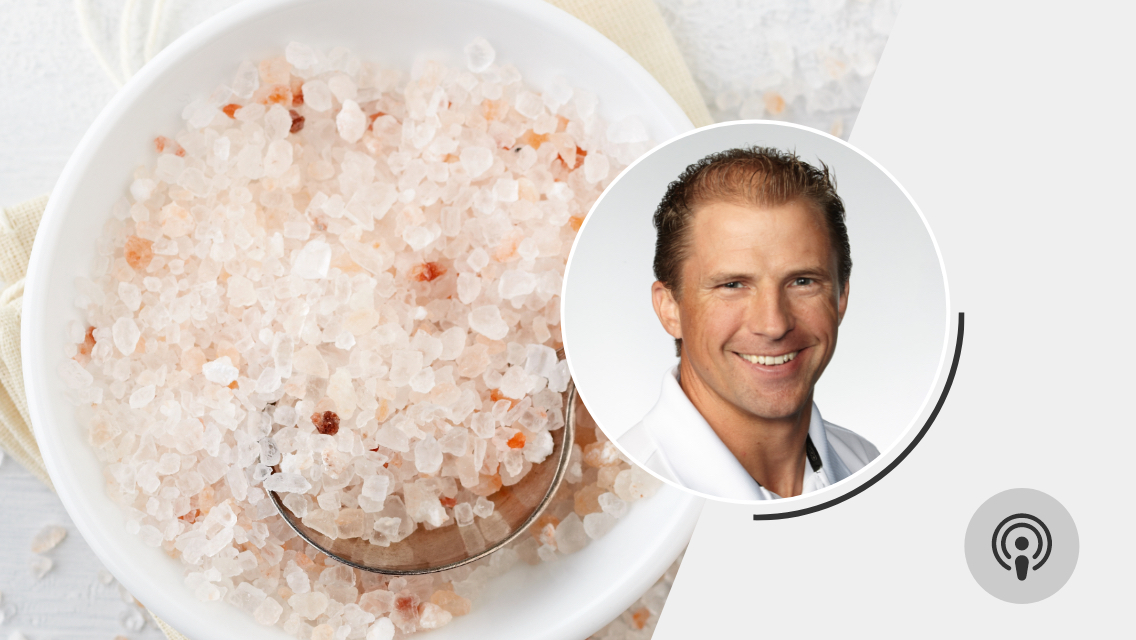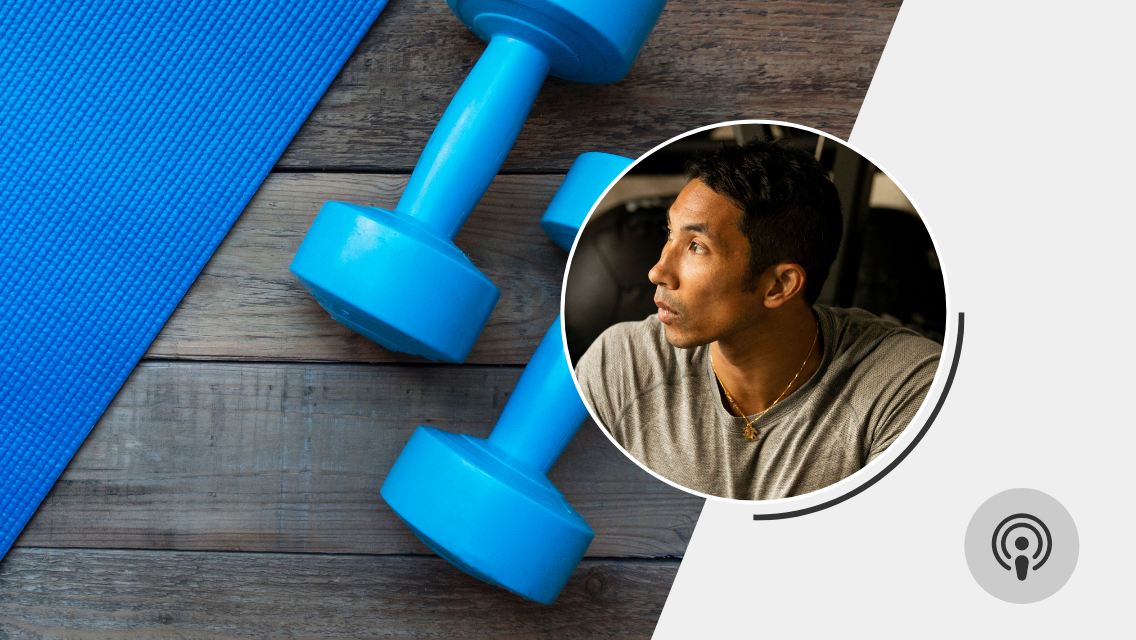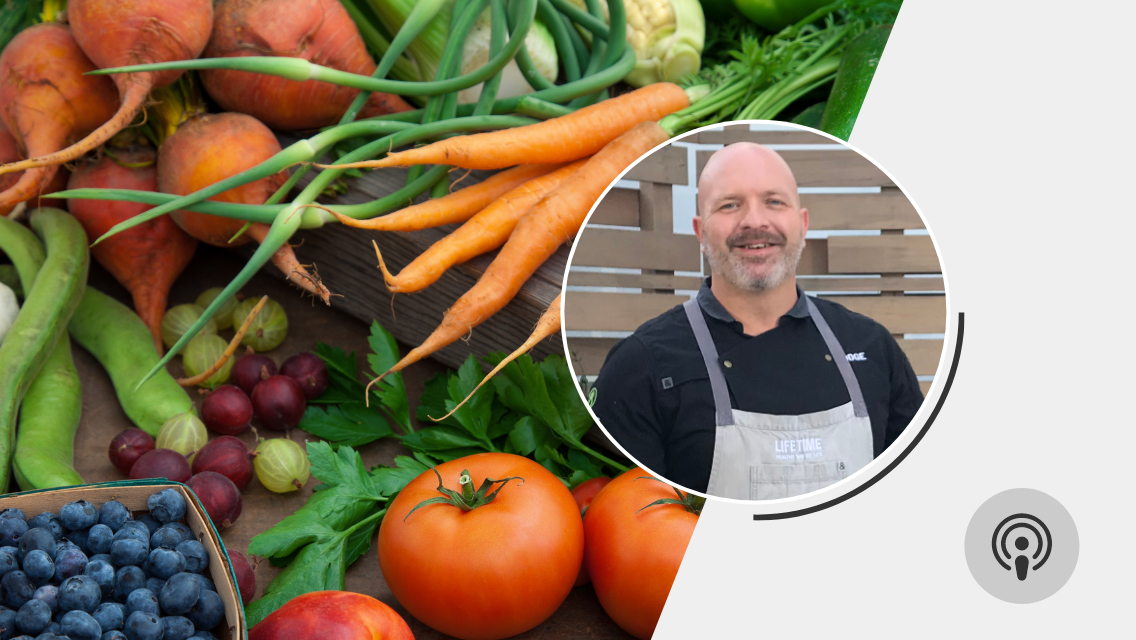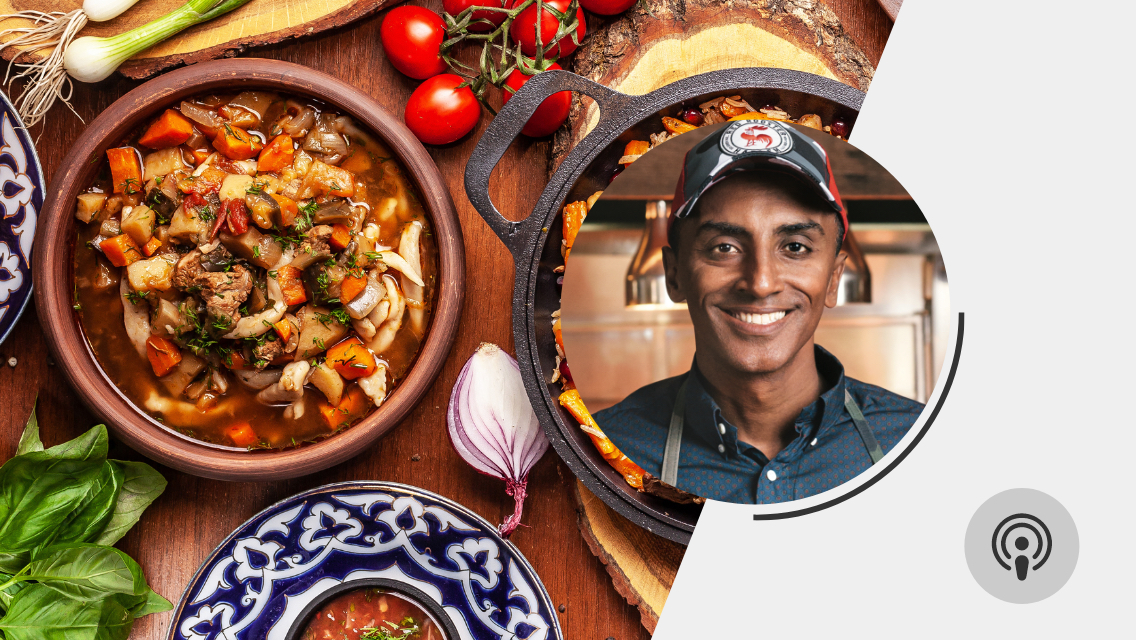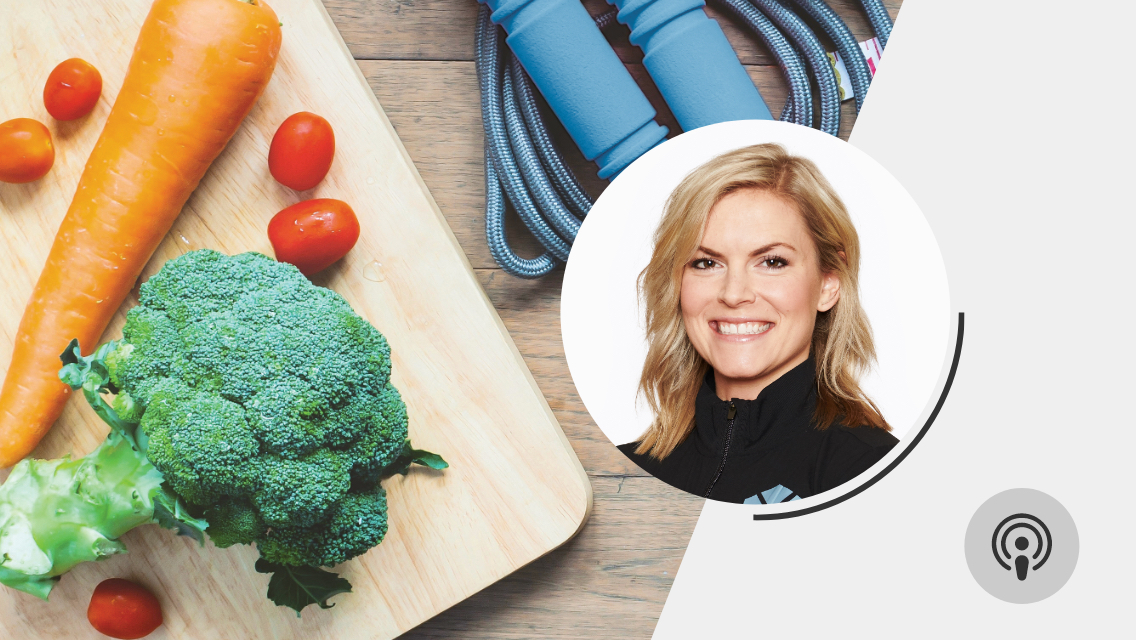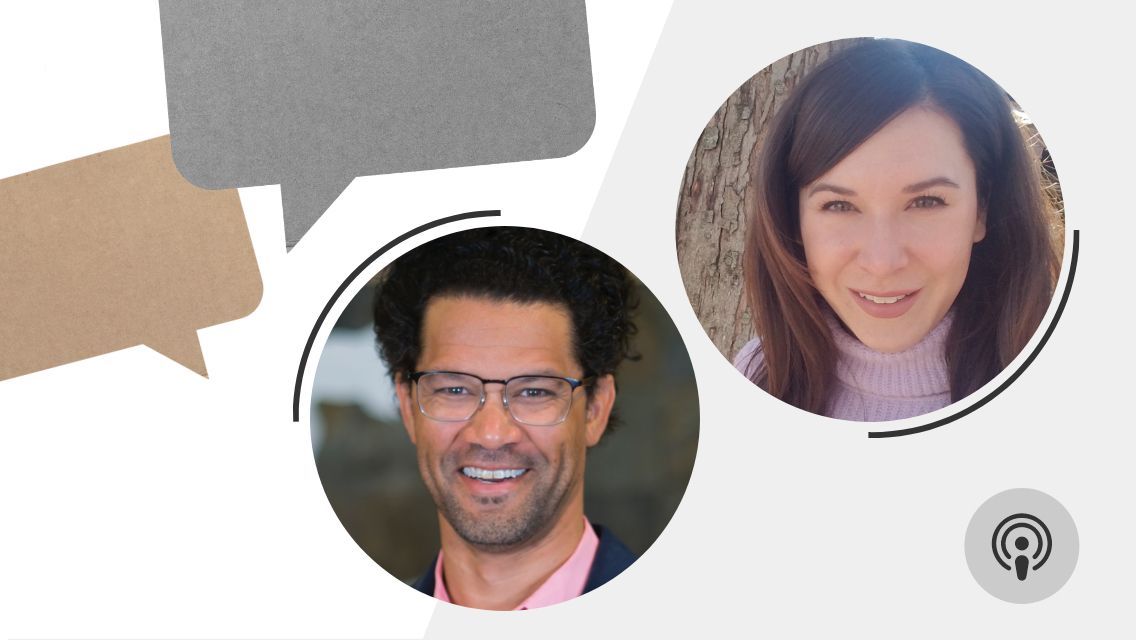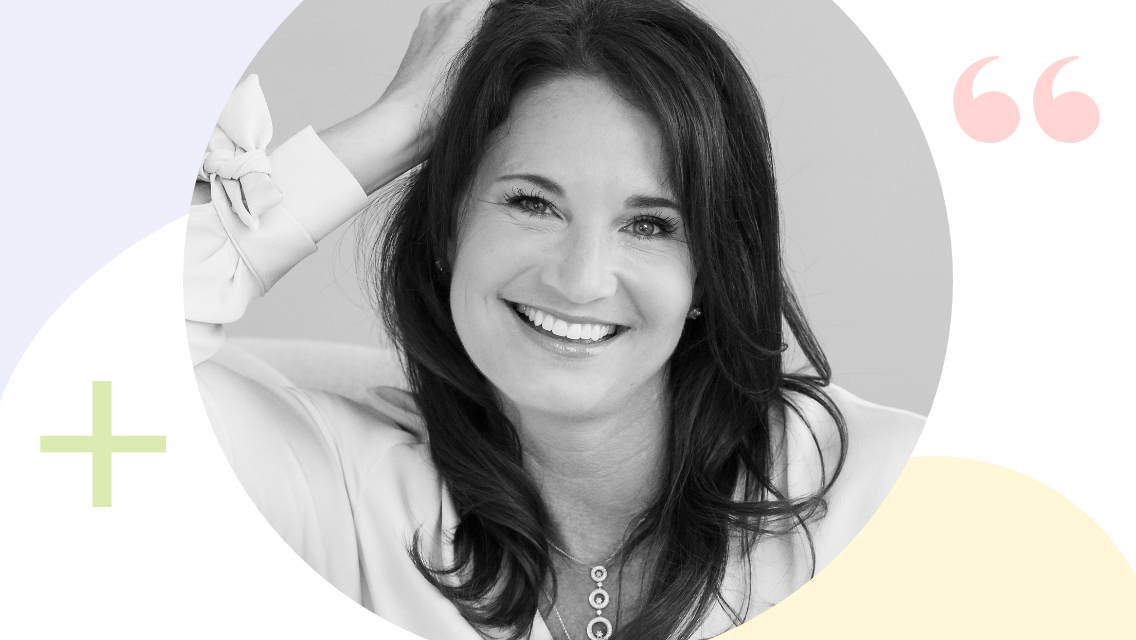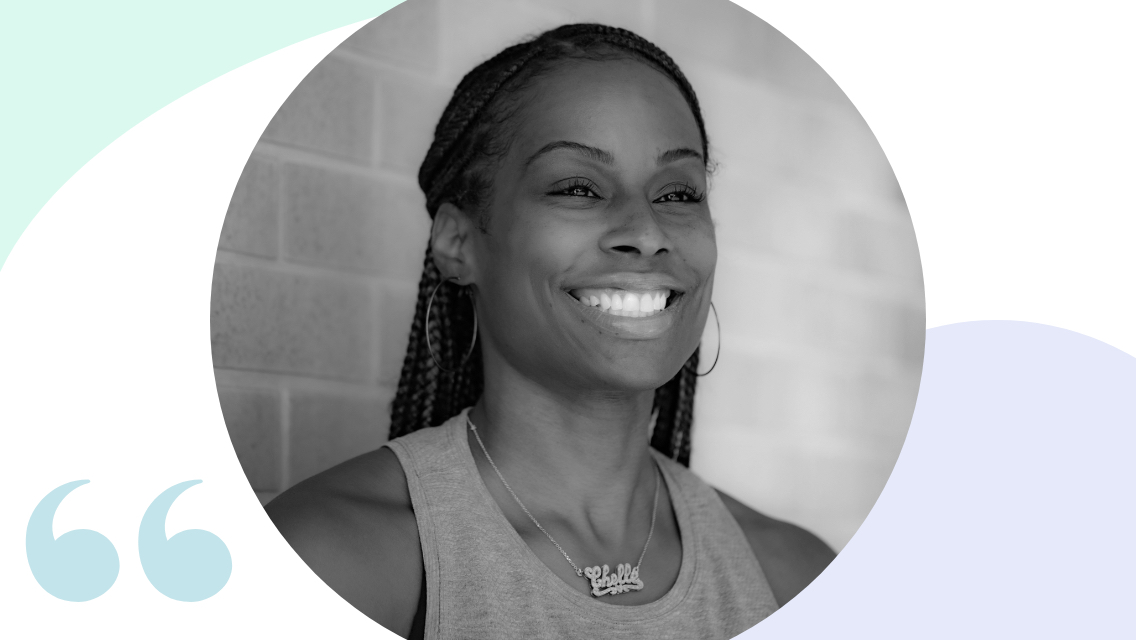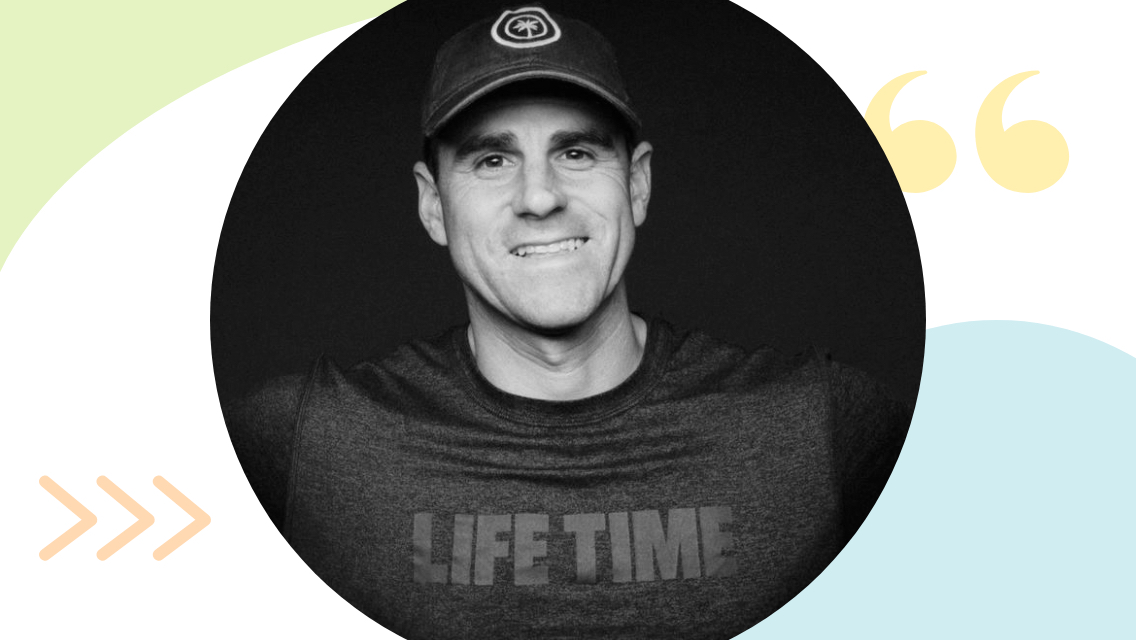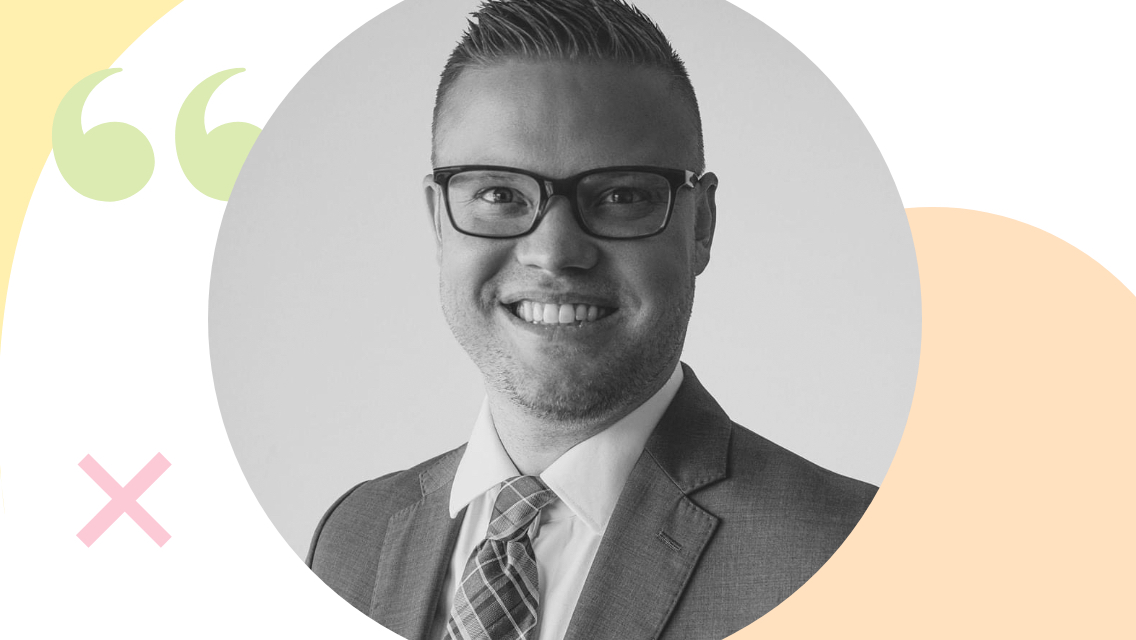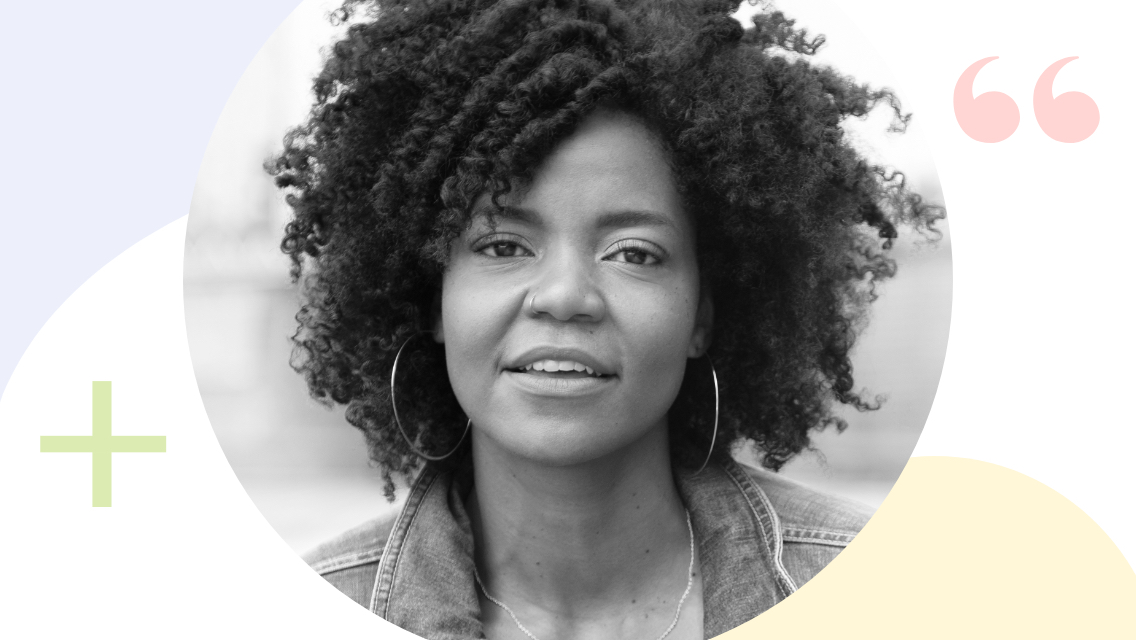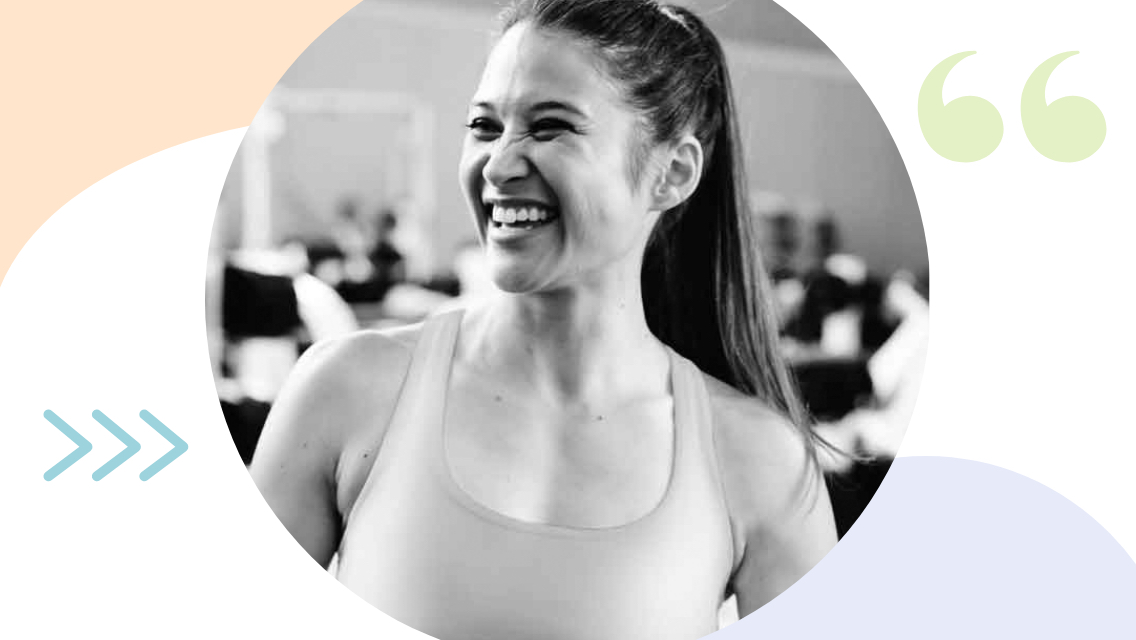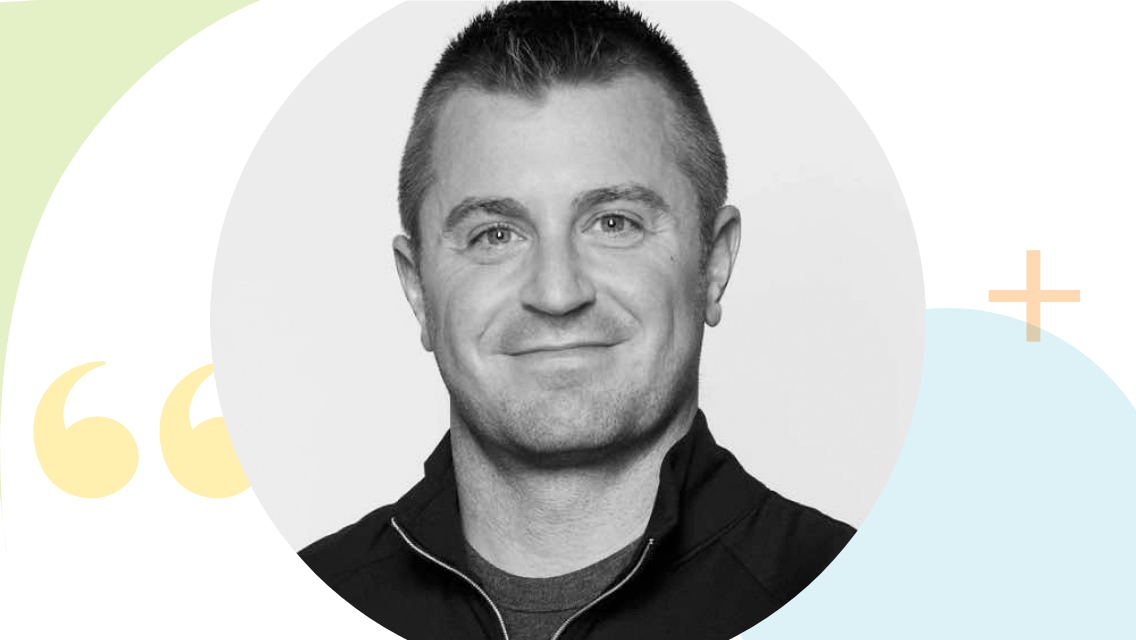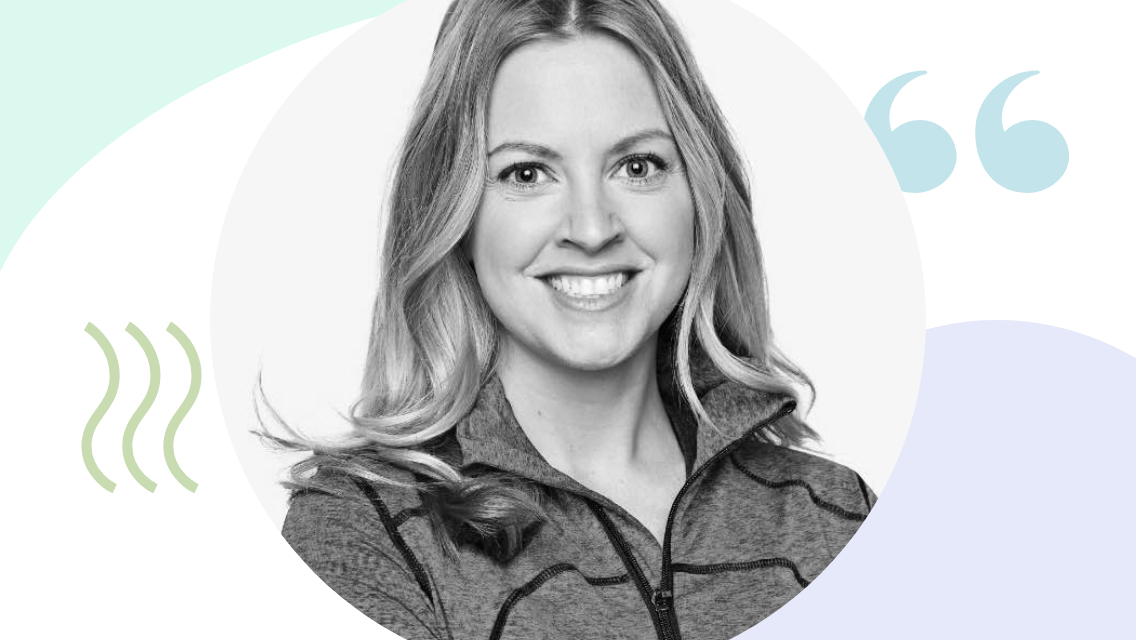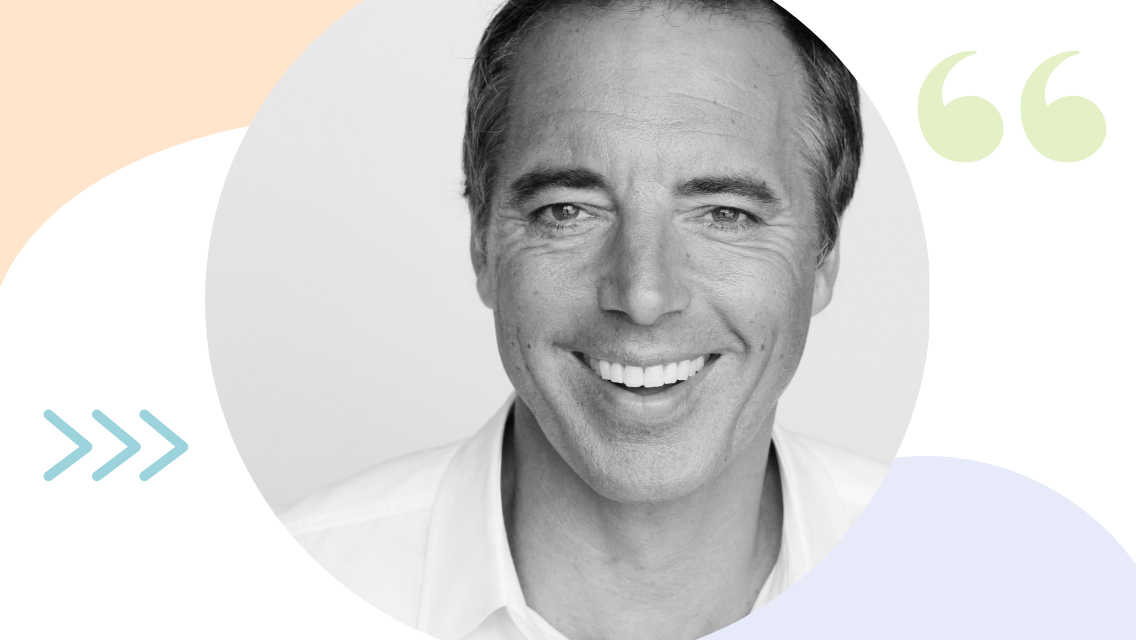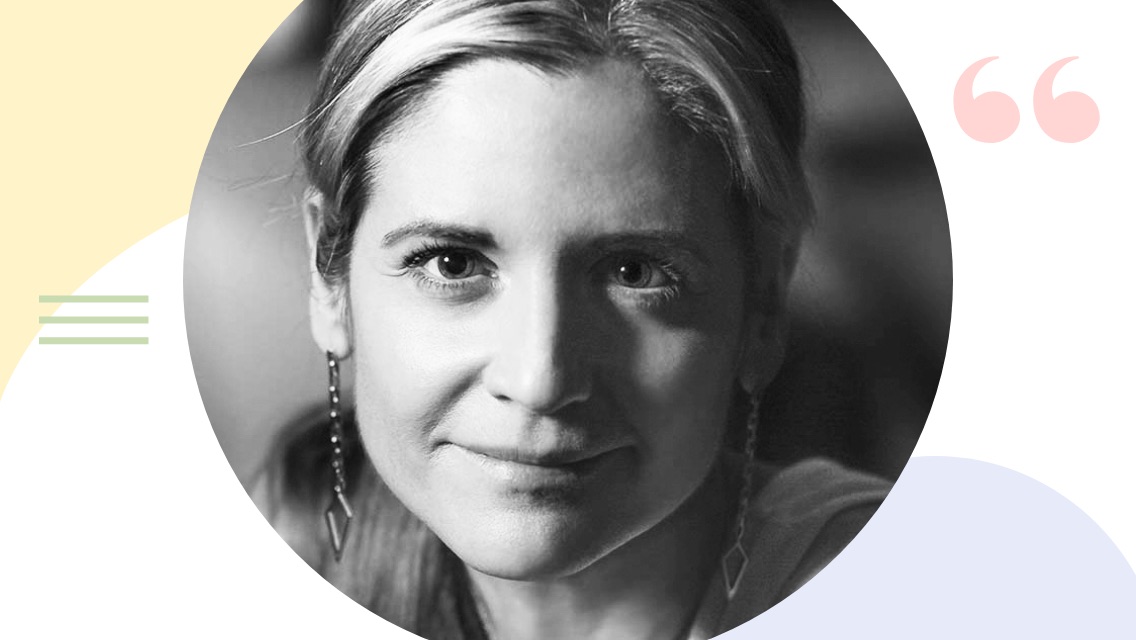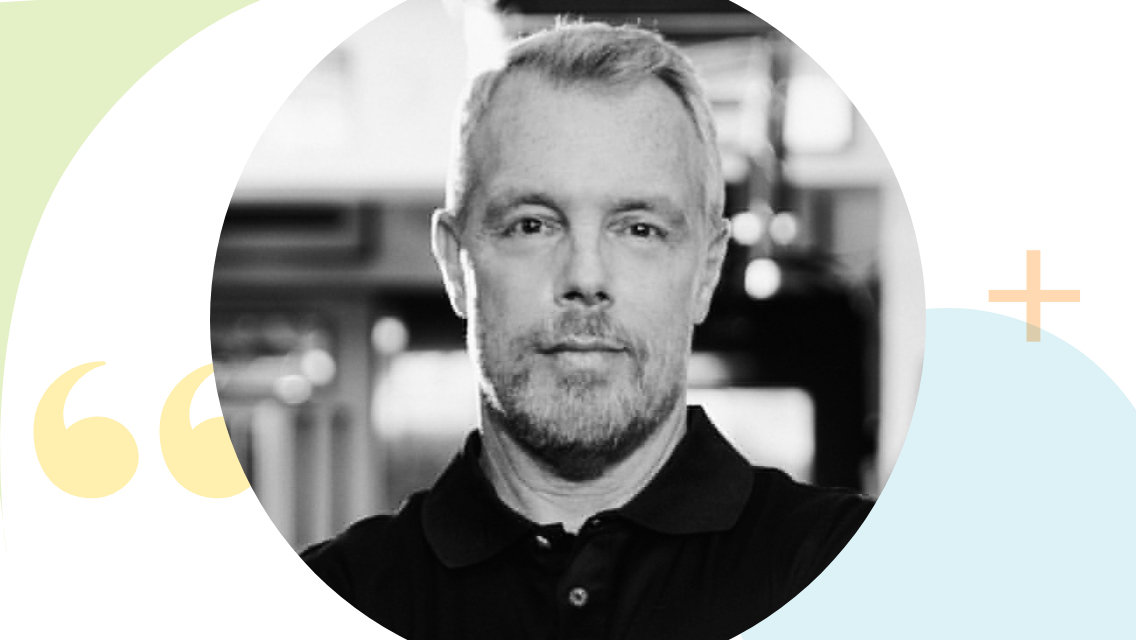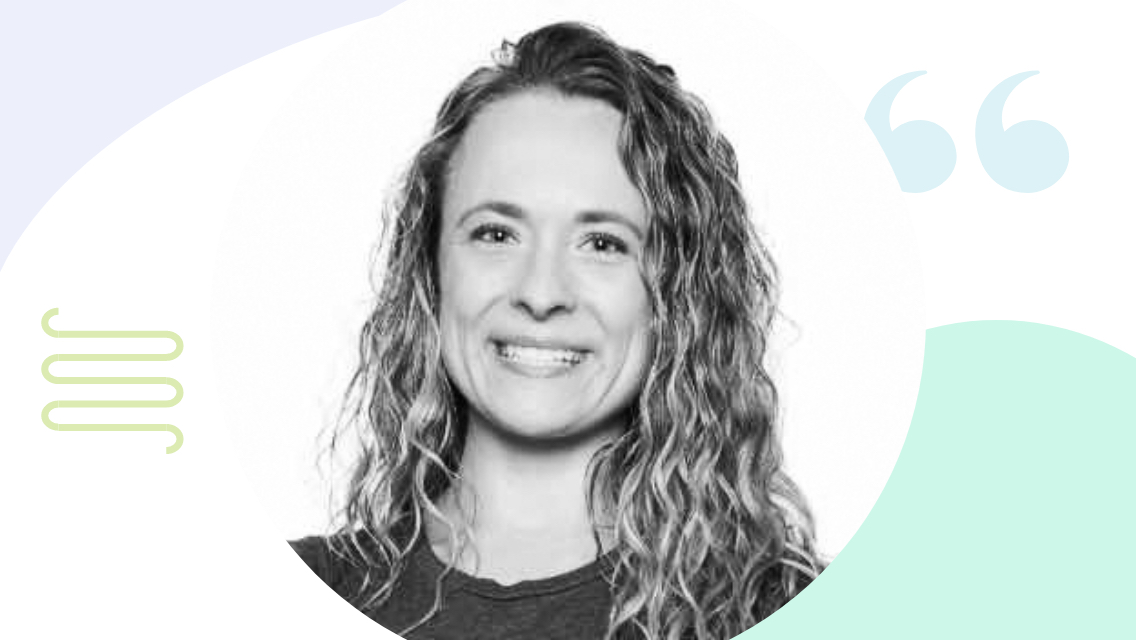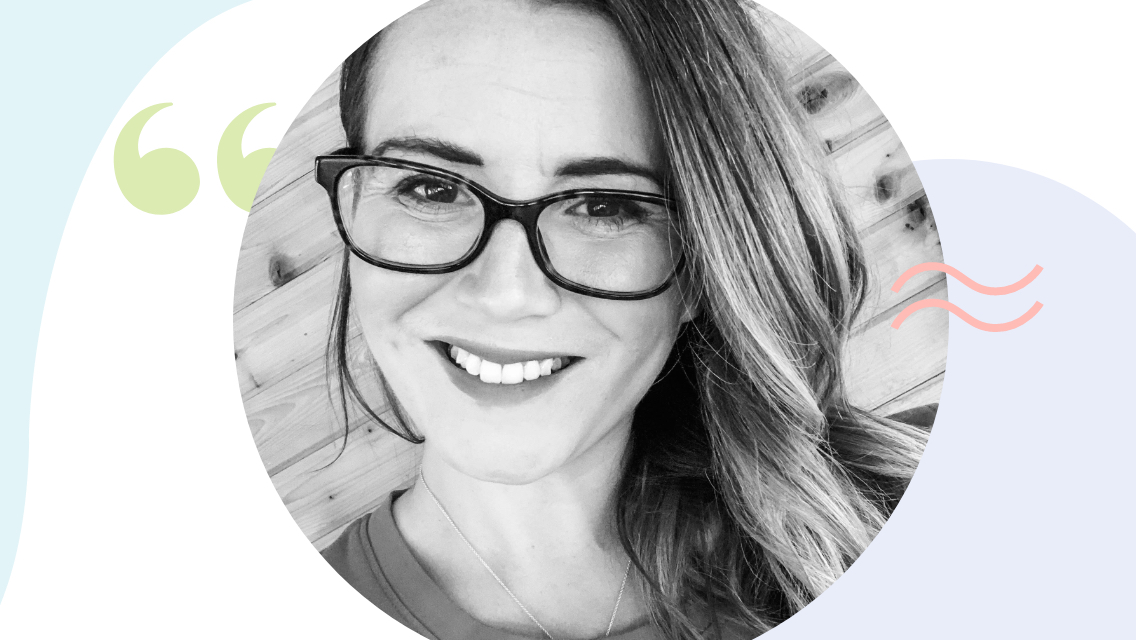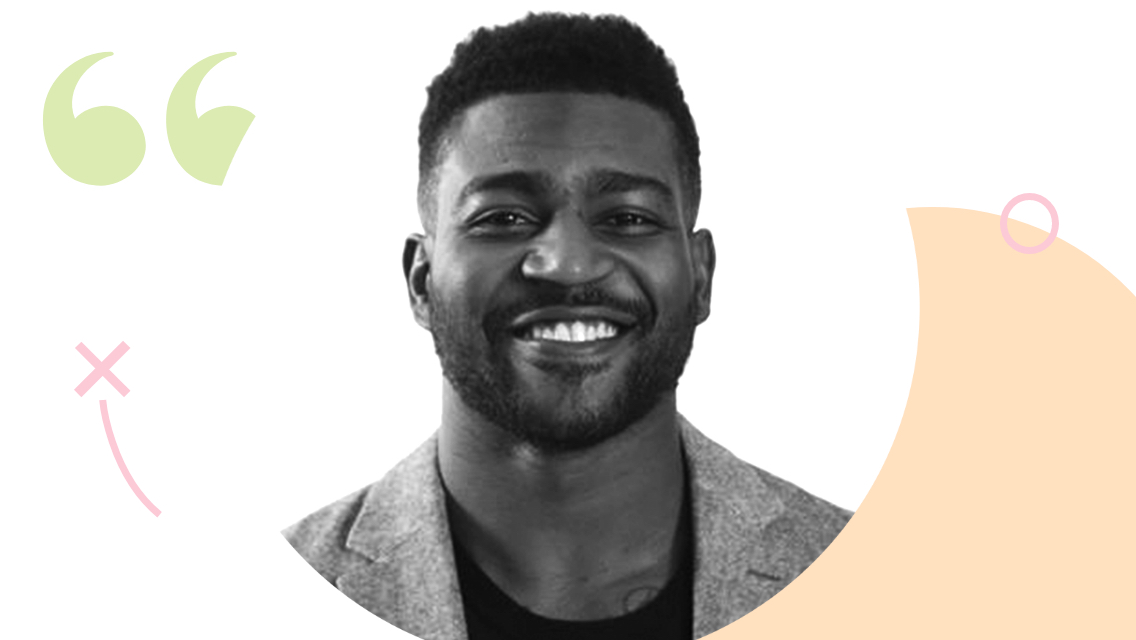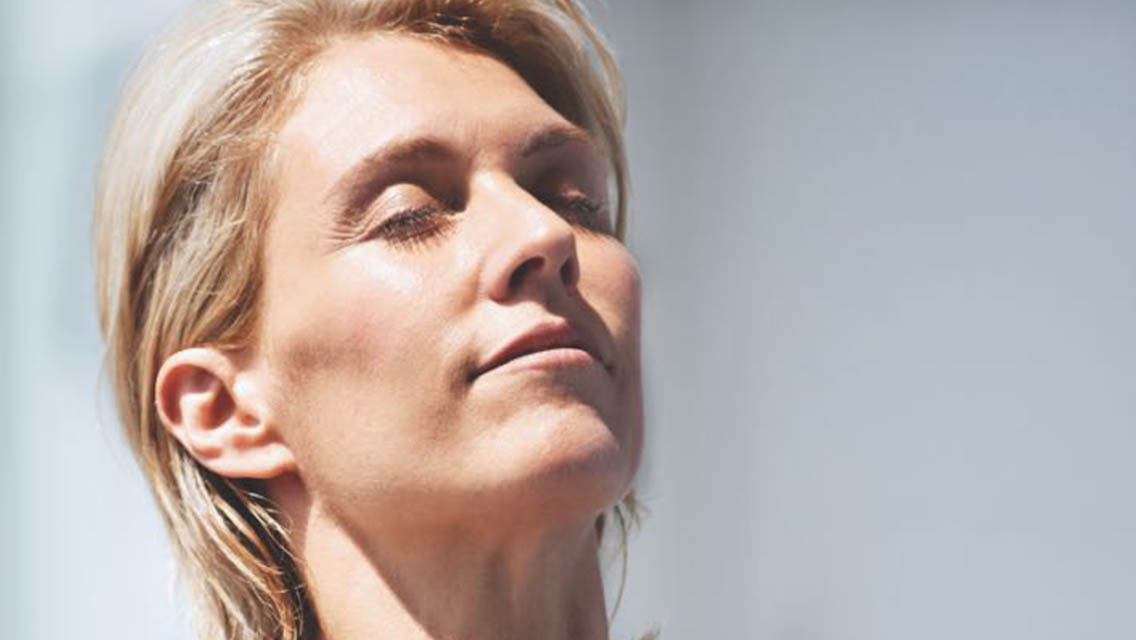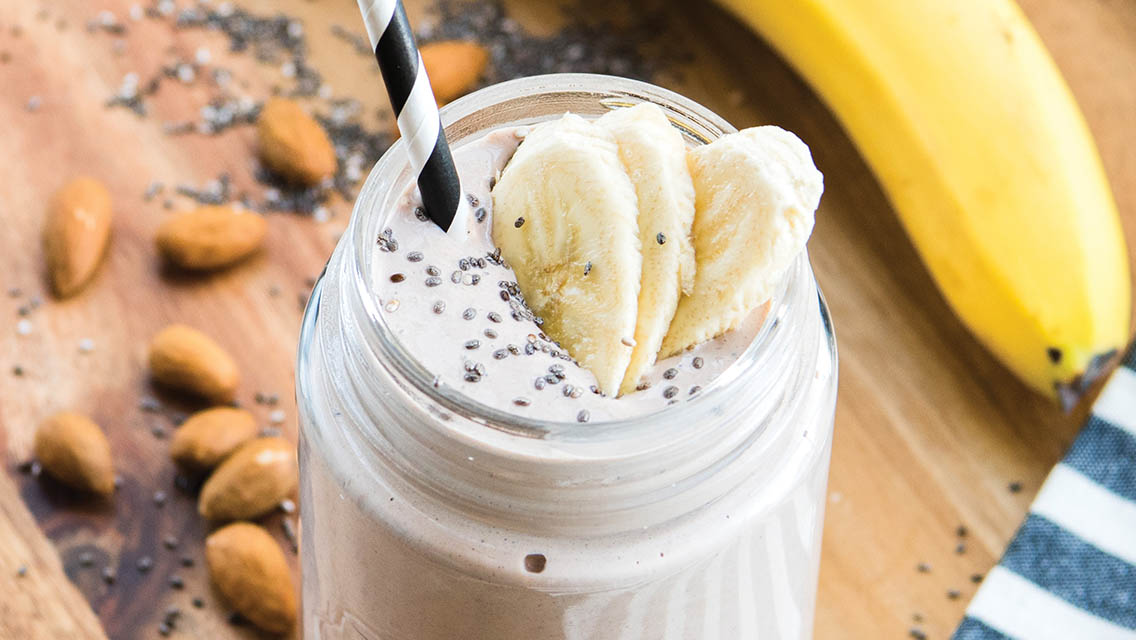
The Life Time Talks Podcast
From getting more out of your workouts and nutrition to living a purposeful, authentic life, Life Time Talks dives deep into different topics to give you the information you need to achieve your health, fitness, and life goals.
Listen on Apple Podcasts, Spotify, or Google Podcasts.
LATEST EPISODES
How to Calm an Activated Nervous System
Learn the reasons your nervous system can become dysregulated and what you can do to bring it back into balance.
Understanding Continuous Glucose Monitors (Sponsored)
Learn about the continuous glucose monitor options that are becoming more accessible to the general consumer, how they work and what they measure, and the ways the data can be used to improve health.
What Supplements Can Support Stress Relief?
Learn about how chronic stress alters our nutrient needs, how nutritional strategies can counteract common stress effects, and the supplement options that can provide valuable support to stressed bodies.
The Case for Epic Adventures
Our guests talk about one of their recent epic adventures, what this type of experience has taught them, and why they encourage others to do big things that scare them.
Ask the Trainers: Your Fitness Questions, Answered (Part Three)
Two Life Time trainers join us to answer some of the common fitness questions they hear from clients.
Why Gut Health Is a Key to Better Health (Performance & Longevity Series)
Learn about the gut’s role in almost every aspect of health, signs it may not be functioning properly, and strategies for support.
What Supplements Can Support My Immune Health?
Learn about key nutrients that are necessary for supporting a healthy and resilient immune system and the role supplementation can play in immune health.
Sleep and Resiliency: A Guide to This Essential Recovery and Repair Window (Performance & Longevity Series)
Learn about the critical role of sleep for health and longevity, the barriers that might be preventing you from getting enough quality sleep, and practical strategies for sleep improvement.
Yoga as Prehab for Coping With the Mental and Physical Challenges of Breast Cancer
This episode highlights one woman’s breast cancer story and how her yoga practice helped prepare her for the mental and physical challenges of the disease.
Detoxification Done Right (Performance & Longevity Series)
Learn about the body’s natural detoxification process, how it works within the body, and what you can do to support this aspect of your health.
The Blue Zones Habits for Happiness: Insights for Living a Longer, Happier Life
Dan Buettner, discoverer of the Blue Zones, shares learnings we can all apply to live longer, happier lives.
Aging With Brain Power: How to Boost Your Mental Acuity and Cognition (Performance & Longevity Series)
Explore the key factors that affect cognitive health, and learn strategies for protecting your brain and optimizing mental acuity.
How to Support Your Metabolism in Your 40s and 50s
Learn the shifts in metabolism that can happen with age, as well as ways to support a healthy metabolism.
How to Build Immune Resilience (Performance & Longevity Series)
Learn about the many influences on the immune system and take away practical insights for boosting your immune health.
A Boundless Approach to Aging
Aging is inevitable, but many of the effects commonly associated with it don’t need to be. This episode explores the question “What if our definition of aging had no limits?”
Pursuing Peak Performance: How to Reach Your Full Potential (Performance & Longevity Series)
Learn steps you can take — no matter your age or stage in life — to achieve your best possible health.
The Rise of Hybrid Fitness Training and Competitions
Learn why some athletes are choosing hybrid training as an effective and efficient approach to exercise, as well how, for some, participating in hybrid fitness competitions has enhanced their health and fitness.
How to Optimize Your Thyroid and Fuel Your Body’s Metabolism (Performance & Longevity Series)
Learn the important role of the thyroid in overall health as well as common symptoms of thyroid imbalance and key biomarkers that indicate how well the thyroid is functioning.
9 Tenets to Build Mental Fitness
Dr. Drew Ramsey presents nine tenets for mental fitness from his book, Healing the Modern Brain, offering insights and actions to help you build habits for the betterment of your mental well-being.
Hormone Optimization: The Men’s Guide to Vitality (Performance & Longevity Series)
Learn what’s behind the rise of hormone issues in men of all ages — and about the strategies that can help men address hormonal issues and better control this area of their health.
I Know I Should Exercise But . . .
Understand the reasons why we often don’t move and gain tools for moving past mental barriers to exercise.
Hormone Optimization: The Women’s Guide to Vitality (Performance & Longevity Series)
Learn what’s behind the rise of hormone issues in women of all ages — and about the strategies that can help women take back control of this aspect of their health.
All About The Body Blueprint
Get an inside look at Coach Hayley Akradi’s approach to fitness training and how it’s influenced the eight-week Body Blueprint digital program, available for anyone who’s aiming to build strength and hypertrophy.
Stress and Resiliency: Understanding Cortisol (Performance & Longevity Series)
Learn about how cortisol works within the body, signs it may be out of balance, and strategies for managing stress and creating a more resilient body.
Exploring the Role of AI in Healthcare
Learn about the opportunities for AI in healthcare and what it might mean for individuals, patients, and medical professionals moving forward.
Becoming Heart Smart (Performance & Longevity Series)
Learn the hidden causes of heart disease, how it progresses, and how to prevent, and potentially reverse it, so you can own your cardiovascular health and be “heart smart.”
Some Positive News in Nutrition Legislation
A leader from the Center for Science in the Public Interest — a food and health watch group — joins us to talk about the current state of food safety oversight and regulations, as well as about some of the recent legislation that is beginning to move in a positive direction for our health.
Breaking Insulin Resistance: Your Guide to Blood-Sugar Mastery (Performance & Longevity Series)
Understand the widespread and critical issue of insulin resistance, including its implications for health and the steps you can take to monitor and manage your blood sugar.
Running the Long Race
From being inspired by her grandfather to run to becoming an Olympian and finding fulfillment in post-Olympic life, long-distance runner Kara Goucher has lived a life marked with many accomplishments — as well as challenges that she’s risen to meet with vulnerability and courage.
Inflammation and Aging: The Hidden Connection (Performance & Longevity Series)
Understand the concept of metabolic inflammation — or “metaflammation” — and how it can silently affect metabolism, leading to accelerated aging, or “inflammaging.”
A Day in the Life: A Look at the Healthy-Way-of-Life Habits of Our Cohosts
Get a glimpse into the routines of our cohosts and how some of our healthy-way-of-life pillars are translated into daily habits they’re able to keep up with most of the time.
Why Bone Health Matters — No Matter Your Age
Learn about the factors that influence bone health and what we can all do, no matter our age, to maintain or improve it.
What’s Really in an Effective Strength-Training Plan?
Learn the movement patterns and other variables that form the backbone of a well-rounded and productive strength regimen.
What’s Behind the Shifting Drinking Culture?
Learn about the growing sober-curious movement and the effects of temporary alcohol abstinence on physical and mental health.
Why Allergy-Friendly Foods Can Make All the Difference
Gain advice for how to better navigate the food world with food allergies.
Amp Up Your Sports Performance
Learn why an outside-of-practice-and-play training plan can help you perform well in your sport of choice — and function at your best outside of it.
Why Exogenous Ketones? (Sponsored)
Learn how exogenous ketones can benefit health, including aiding athletic performance and recovery, supporting cognitive health and energy production, and more.
Move Your Body Through Grief
Learn how physical movement can be used as a tool to help transform your grief.
Taking a Balanced Approach to GLP-1s
How short-term use of GLP-1s — when used in combination with intentional lifestyle changes — may be a healthier path toward long-term weight management.
Breaking Down Weight-Loss Barriers
A roadmap of habits for support your efforts for body-composition change.
How to Eat for Good Gut Health
Learn why nutrition plays such an essential role in caring for the gut, as well as the foods and supplements that can help the most.
Why Creatine?
Creatine can be a powerful supplement for improving lean muscle mass, strength, energy, cognition, and more.
Why Supplementation for Sleep?
Learn the supplement strategies that can help if you’re someone who struggles with winding down at night, falling asleep, or staying asleep.
Why Consider a Daily Greens Drink?
Learn how drinkable blends of vitamins, minerals, and plants can support daily wellness.
The 7 Rules of Self-Reliance
Abouelenein walks through each of the rules outlined in her book, 7 Rules of Self-Reliance, explaining how you are your greatest asset to achieving what you want in life.
Beyond the Scale: Understanding Measurements of Body Weight
There are several ways to measure body weight, and different methods offer different insights into your health. Learn the metrics — including those related to body weight and beyond — that can give you the picture of your overall health status.
What Is Metabolic Health, Anyway?
Gain an understanding of eight factors that can help you better understand your current metabolic health, including why each is important for longevity and vitality.
5 Takeaways From 5 Years of Life Time Talks
In this kickoff episode to season 10, the Life Time Talks cohosts celebrate the five-year anniversary of the podcast.
Strategies for Unlocking Greatness and Potential
Learn expert strategies for unlocking greatness so you can show up as the best version of yourself in this current phase of life.
How the Little Things Can Create Meaningful Change
How focusing on the little things we can do every day can add up to meaningful change and help us stay on track with our health and wellness goals.
All About the Circadian Rhythm
Learn the importance of regulating your circadian rhythm for overall health — and the steps you can take to do so.
How to Handle Food Cravings
Whether it’s a hankering for something salty, sweet, or savory, we all experience food cravings — and times when they can deter our healthy-eating plans.
Hormone Health and Longevity: Making the Connection
Learn how hormones change as we age, as well as how to safely optimize them to benefit health, as well as improve longevity.
Training for Longevity
Learn the connection between fitness and longevity and strategies for training to be fit for life.
Finding Light in the Dark
Robinson shares how he’s overcome many personal struggles, and his story can serve as inspiration for others to find whatever light they can in dark times and to keep moving forward.
Why We Need Sleep
Sleep is often taken for granted, yet its role in our lives cannot be underestimated, as too little or poor quality of it can negatively affect us physically, mentally, emotionally, and socially.
How What We Eat Affects Our Sleep (and Vice Versa)
Learn how your nutrition habits influence your sleep quality — and vice versa.
Why Colostrum?
Learn what colostrum is and about the benefits it can provide to health. Plus, get expert guidance around how to add it to your supplement regimen.
Why Seasonal Eating?
Nature is designed to help provide the types of foods we need at the times we need them — and fall, the season of harvest, is an opportune time to reset our food routines and embrace all that nature has to offer.
GLP-1s, Weight Loss, and Health: A Panel Discussion With Life Time’s MIORA Leaders
Learn how GLP-1s can safely and strategically be used to support your health and weight-loss goals while also promoting overall wellness.
Why Multivitamins?
Learn why a multivitamin is a daily staple of a healthy nutrition regimen — even if you eat a mostly healthy diet.
All About LTH: The Story of Life Time’s Nutritional Supplement Line
Learn about the story of Life Time’s nutritional line and how it’s evolved over the past two decades — including the evolution to its rebranding as LTH.
A Story of Lifelong Curiosity: Learn, Dream, and Imagine
Learning is not something to be limited to our school-age years — if we can be curious and find new ways to learn, dream, imagine, and try throughout our lives, then we stand to be happier and more fulfilled in the long run.
Supplements Are for Kids, Too
A Life Time dietitian explains the role nutrient status plays in childhood and adolescent development and why supplementation is an important factor in these growth periods.
A Peek at In This Lifetime: The New Coffee Table Book
The author of the new coffee table book from Life Time joins us to talk about its creation and intention.
The Essential Elements of Yoga
Yoga delivers powerful physical benefits — but the foundation of the practice is built on many mental skills, which may be even more advantageous for overall health.
Ask the Trainers: Your Fitness Questions, Answered (Part Two)
Two Dynamic Personal Trainers join us to answer some common fitness questions they hear from clients.
The Case for Authentic and Effective Communication
Understand the skills, strategies, and best practices for having effective and authentic conversations in the workplace — and beyond.
How to Create a Diverse Movement Diet
Learn about Bowman’s concept of the “Movement Diet” and how anyone can improve the health of their movement plan by being thoughtful about “movement calories,” “movement macronutrients,” and “movement micronutrients.”
The Will to Push to Your Potential: A Conversation With Olympic Swimmer Ryan Lochte
Hear from 12-time Olympic medalist Ryan Lochte about his experience in the sport of swimming, and how he trained his mindset so he was purposeful in his efforts to achieve his goals.
Listen Up: Why Taking Care of Your Hearing Health Matters
One in four people are projected to have some degree of hearing loss by 2025, according to the World Health Organization — and hearing loss is connected to several deeper health impacts, including cognitive decline and cardiovascular function.
Why Aminos for Recovery?
Amino acids are the building blocks of protein that are perhaps most well known for their role in helping us build strength and lean tissue and recover well from exercise.
Rethink, Reimagine, Adapt: How Life Time Has Evolved
Hear from the founder of Life Time in his featured Q&A session from the 2024 Sea Otter Classic Summit in Monterey, Calif., in April.
No Limits: Making Fitness Accessible for All
Those with a disability, injury, or other physical restriction may feel their fitness options are more limited than they are for others — but with some modifications and a shift in mindset, they can discover what they can do rather than what they can’t.
How Functional Neurology Can Improve Fitness Performance — For Everyday Athletes and Professionals Alike
Performing well in fitness endeavors takes consistent effort — yet even with persistent dedication, there may be underlying causes preventing you from performing at your best.
Love, Purpose, and Genius: How to Tap into Yours
Life is stressful and trying at times, and it can leave us feeling overwhelmed, anxious, and restless. Yet best-selling author Jasna Burza believes we inherently possess what’s needed to change how those difficult experiences impact our lives — and the lives of others.
A Clearer View of Health: A Guide to Understanding Comprehensive Bloodwork
Learn about some additional blood markers you can have tested beyond the traditional panels and why they matter for painting a more complete picture of your current state of your health.
Why Do You Need Electrolytes for Hydration?
Our bodies need electrolytes for a variety of reasons, but perhaps most importantly, because they help keep us hydrated and direct water where it needs to go inside the body.
Harnessing Choice and Change to Live a Magnetic Life
In her book, You Are a Magnet, author and life coach Amber Lyon makes the case that our ability to choose and change creates opportunities for each of us to live a more satisfying, meaningful, and joyful life in the here and now — but we have to do so consciously and intentionally.
Why Red-Light Therapy?
Red-light therapy uses different wavelengths of light to create some sort of impact — and when it comes to health, those benefits can include faster healing, reduced inflammation, muscle recovery, and more.
A Guide to Eating and Exercising During Pregnancy
Understand the influence that eating and exercise habits have on a pregnancy, how an individual’s needs change in these areas during this time, and which efforts to prioritize to support the health of both mom and baby.
An Integrative Approach to Mental Well-Being
Learn why taking an integrative approach to mental well-being can be a productive route to a more optimal state of mental-well-being, and gain tangible ideas for different practices and modalities that can help you feel and function better.
Why Supplement With a Greens Powder?
A greens powder supplement is one straightforward way to up your intake of a variety of veggies and fruit.
Why Trees Matter So Much — for the Health of People and the Planet
From cooling and cleaning the air to improving our mental and physical well-being, the effects that trees have on our health are more powerful and wide-reaching than many of us may realize — or give them credit for.
Why Escalating Density Training?
Escalating Density Training (EDT) is an approach to training that’s focused on density during strength training — and that can mean big results in a shorter period of exercise.
Why Whey Protein?
Whey is considered one of the best sources of protein. Understand what whey is, its benefits to health and fitness, and how to choose a quality whey protein powder.
Why It’s Worth it to Test for At-Home Food Reactions
A registered dietitian explains what food sensitivities are, what the symptoms and causes are, and what’s involved in testing for them — and the advantages of doing so.
Ask the Dietitians: Your Nutrition Questions, Answered (Part Two)
Which supplement ingredients should I avoid? What is considered “clean eating”? Are there healthy habits to never waiver on? Life Time dietitians answer these common nutrition questions — and more.
Constant Change: How to Embrace it and Adapt
Although we often inherently feel resistant to change, it is a constant, and it’s valuable to see the potential it in so we can continue to adapt and grow.
Caring for Caregivers
Whether you’re in a position of caregiving for loved ones or in an industry in which it’s your job to do so, caring for others can take an invisible toll on one’s health. It’s made even more challenging by the lack or absence of societal systems to support caregivers.
Laura van Dernoot Lipsky, MSW, explains the effects of caregiving, including the corresponding struggles you may experience — such as trauma, decision fatigue, and overwhelm. She also shares ideas for how caregivers can care for themselves and support their well-being.
How to Thrive With Anxiety
Anxiety has been on the rise for the past several years — and it’s something that can range from feeling uncomfortable to debilitating for those who experience it. David H. Rosmarin, PhD, helps us understand why anxiety is a normal bodily response and how we can change our relationship with it to turn it into something that can actually help us thrive in our lives.
Embracing Intuitive Training
Ultramarathoner Courtney Dauwalter is no stranger to pushing her body and mind to the extreme — she’s done it time and again as she pursues ultra-endurance goals. To prepare for long races (many of which exceed 100 miles), she uses a method of “intuitive training,” an approach in which she tunes in and listens to the messages from her body and mind. In this episode, Dauwalter shares what led her to embrace this mode of training and how she consistently pushes forward in these big efforts — even when it feels hard.
Living Well While You Live Long: The Growing Quest for Longevity
Most of us, regardless of our age, are looking to optimize not only our lifespan, but also our health span. In recent years, this quest for longevity has contributed to a growing business with significant economic impact.
In this, episode, Jeff Zwiefel and Jim LaValle, RPh, CCN, discuss the lifestyle factors that contribute to a long and healthy life, as well as the growing body of resources and tools that can support this effort, including MIORA Performance and Longevity at Life Time.
What Are Macros and Calories?
Understand the differences between macros and calories and the roles they play in our health and well-being — as well as gain insights for how to think about them when it comes to healthy eating.
The Loneliness Epidemic: Why a Sense of Belonging Is Essential to Our Well-Being
Labeled by the U.S. Surgeon General as an epidemic, loneliness is affecting our population at alarming rates and having a devastating impact on both our physical and mental health. In addition to contributing to the increased risks of heart disease, dementia, and stroke, lacking social connection has been proven to be as detrimental to physical health as smoking. Henry Emmons, MD, shares more about these health effects and offers some tangible steps we can all take to increase our sense of belonging.
Why Active Metabolic Assessment?
The Active Metabolic Assessment, often referred to as an AMA, is a test that assesses your current fitness status and provides data that can inform your fitness program and make your workouts more efficient. Anika Christ, CPT, RD, explains what the AMA is, the data you get from it, why that information is important, and how to use it to tailor your exercise regimen.
How Do I Rest — Really? Understanding the 7 Types of Rest
Rest is essential to our health and wellness, yet it often gets pushed to the side in favor of other things that require our time and attention. Importantly, it’s not just physical rest we need: There are six other types that contribute to our overall well-being.
In this episode, Barbara Powell, MA, NBC-HWC, joins us to first explain the signs and symptoms of under-rest to watch for. She then delves into the seven versions of rest we need, and for each, the micro, macro, and habitual ways we can get more rest so we can perform better and live life more fully.
The Downsides of the Sweet Stuff: All About Sugar and Sugar Alternatives
Sugar is everywhere, and — as with so many things — too much of it is detrimental to our health and well-being. While this is common knowledge for many, most of us are still consuming well more than is recommended, and the topic has gotten even more confusing in recent years with the proliferation of artificial and natural sweeteners. Paul Kriegler, RD, CPT, explains the body-wide health effects of sugar, the pros and cons of the various types of sweet sources, and how we can be more mindful about sugar’s place in our diets.
Workplace Burnout Is Real: Signs, Symptoms & How to Take Action
Professional burnout rates are at an all-time high across many industries — and our always-on culture certainly contributes to the rising issue. Henry Emmons, MD, joins us to talk about how to recognize if you’re experiencing burnout, what causes it to occur, and the short- and long-term solutions you can try for relief.
Leaning on a Breast Friend: How Two Women Supported Each Other Through Their Breast Cancer Journeys
Breast cancer affects one in eight women in the United States every year, and 2.3 million women worldwide. Every breast cancer story is different, and in this episode, we’re highlighting two — and sharing how these two women connected along their journeys to become “breast friends” and irreplaceable sources of support for one another.
Ask the Dietitians: Your Nutrition Questions, Answered
Is there an ideal diet? Do I need to be taking supplements? What should I eat before and after exercising? Life Time dietitians Anika Christ, RD, and Samantha McKinney, RD, join us to answer the most common nutrition questions they hear from members — including these and more
Ask the Trainers: Your Fitness Questions, Answered
What’s the right exercise routine for me? How often should I be working out? How can I make progress when I’m starved for time? Life Time trainers Makoto Matsuo, CPT, and Sarah Pope, CPT, join us to answer a few of the most common fitness questions they hear from members.
Why Collagen?
Collagen is something of a buzzword in the nutrition world of late, yet this nutrient has always been important to our overall health. As our eating patterns have steered toward processed and convenience foods over the past 60 years, our dietary needs for collagen have increased — hence the growing interest in collagen supplementation. Anika Christ, RD, explains what collagen is, its role in our body, and its advantages for health. She also offers guidance around supplementation and supporting your body’s natural production of this nutrient.
A Vision for Success — in Life, Fitness, and Beyond
Daymond John, entrepreneur and Shark Tank investor, has a story that features years of sacrifice, hard work, and perseverance — and that resulted in a rewarding and highly successful professional life. In recent years, John has put those same attributes to work as he’s invested in his personal health and well-being. In this conversation, he speaks to overcoming setbacks, approaching goal setting, and his health journey and current regimen, and shares insights that anyone can apply to their own lives.
The Stages of Menopause + How to Support Your Body
Menopause is a normal physiological process that affects every woman at some point in their life, yet it’s only as of late that it’s being discussed more openly. Samantha McKinney, RD, CPT, discusses what happens to our bodies during menopause and its various stages, the symptoms one can expect and why they occur, and the lifestyle habits and behaviors we can implement to support our bodies during this transitional time.
Why Dynamic Stretch?
Dynamic Stretch is Life Time’s unique approach to one-on-one, assisted-stretch sessions — but what does this protocol actually entail? And how is working with a stretch specialist different than stretching on your own? Danny King, Master Trainer, explains Dynamic Stretch and the support it delivers for improved function, mobility, and performance.
How to Keep Your Brain Healthy as You Age
Our brains age just like the rest of our bodies, and just like it’s important to care for our bodies so we can move functionally well for as long as possible, it’s also essential to do everything we can to maintain and support healthy brain function as the years pass by. With the current absence of effective treatment options for most neurological diseases, prevention really is the best treatment for them, and it’s never too early — or too late — to start. Edward Park, PhD, explains what to know about normal and abnormal brain aging, as well as the lifestyle strategies we have control over to support our brain health and help reduce the risk of decline and disease.
A 5-Step Plan for Starting a New Workout Routine
Getting into a workout routine can be difficult, especially if you’re new to it or have hit pause for a while. Lindsay Ogden, CPT, shares her secret steps for success that anyone can follow to begin — or begin again — and that can set them up for consistent and long-lasting fitness progress.
Be Your Own Best Health Advocate
A Lyme disease diagnosis and accompanying body-wide pain and debilitating fatigue led Ryan Sutter — firefighter, endurance athlete, and Bachelorette alum — to take action to find answers, treatment options, and a path toward wellness. In this episode, Sutter shares his health journey, as well as advice for pushing through challenge, fighting health obstacles, and advocating for your well-being.
A Mid-Year Reflection
Many people put a lot of stock in goal-setting at the start of a new year, but it’s important to also check in with ourselves at various points throughout the year: What’s working? What did I learn? What did I achieve? What should I stop? What should I start?
In this final episode of season 6, Jamie Martin and David Freeman consider what they’ve learned from this season’s episodes and personally reflect on changes and challenges they’ve experienced in the first half of the year.
Live, Work, Play: Bringing a Healthy Way of Life In to All of Your Spaces
Our wants and needs in our work and home environments have changed, with many of us prioritizing health-supportive features now more than ever. In this episode, James O’Reilly, president of Life Time Work, and Eric Padget, senior director of real estate for Life Time Living, share how health can be better integrated into spaces and how Life Time has responded to this desire with the offerings of Life Time Work coworking spaces and Life Time Living apartment homes, respectively.
The Mind-Body Connection: Tapping in to Mindfulness Through Movement
The mind-body connection refers to how our thoughts, beliefs, attitudes, and feelings either positively or negatively influence our physical bodies — and vice versa. It can be a truly powerful resource to tap into. In this episode, Jessie Syfko explains more about this connection, the benefits it provides, how we can grow it, and the integral relationship it has to our fitness efforts.
Why Lunges?
Lunges are a fundamental movement for strengthening muscles from your waist down. Yet because they appear easier to perform than they actually are, many people do too many too soon and end up discouraged or with lower-back or knee injuries. Alec Blenis, CPT, CSCS, explains why this move is a staple in strength and conditioning programs and how to add lunges into your routine in a safe and beneficial way.
Allergies, Sensitivities, Intolerances: All About Food Reactions
Adverse reactions to many foods are on the rise, and while allergies are often more easily identifiable, sensitivities and intolerances typically are not. Regardless, they can all cause troubling effects in the body. Samantha McKinney, RD, explains the differences between food allergies, sensitivities, and intolerances, what the common food offenders are, how to spot signs of a reaction, and — in the case of the latter two — why those signs are often symptoms but not the root cause.
Why Fitness Competitions?
The term “fitness competition” often conjures images of bodybuilding events, but it’s much more encompassing than those, including 5Ks and marathons, powerlifting meets, obstacle course races, and more. Danny King, Master Trainer, explains why he thinks everybody — at any fitness or experience level — can benefit from participating in a fitness event.
Finding Strength in Partnership
Working with a coach or personal trainer can boost your fitness efforts and help you make meaningful progress toward your goals. Sometimes, however, we overlook how powerful the partnership can be, including the gains that go beyond physical fitness. In this episode, we hear the firsthand experience of Life Time member Roshini Rajkumar and her coach Brian McKinney, CPT, how they get the most out of their experience working together, and what to look for in your own trainer-client relationship.
Why Massage?
Many view massage as a luxury or splurge — but some experts argue that it’s an investment in your health and wellness and deserves to be part of your routine. Zac Ellis, certified massage therapist, explains why he suggests adjusting your perceptions around massage, the benefits that can be reaped from the practice, the different types of massage modalities, and how to get the most out of a session.
What Is Inflammation?
Inflammation is a natural bodily response that is essential in acute circumstances — we need it to happen we get a paper cut or if we’re fighting a head cold. Its harmful effects occur, however, when it becomes chronic and systemic. Functional-medicine practitioner Gregory Plotnikoff, MD, shares what to know about inflammation, including what causes it, how it impacts our health, ways we can test for it, and proactive steps we can take in our daily lives to tame it.
What to Know About Nutritional Supplementation
There’s a lot of confusion around supplements, leaving many wondering, “What supplements should I take?” or “Do I even need to take any at all?” Paul Kriegler, RD, CPT, shares the top supplements he recommends for most everyone, why supplementing is perhaps more important now than ever, and the importance of quality and how to identify the best options.
Sprints, Strength, and Balance: A Look at Ultra Fit Training
The blend of sprinting with strength and balance work makes Ultra Fit training unique in its ability to improve your functional fitness and push you to your athletic limits. It’s also why Bahram Akradi, the founder and CEO of Life Time and developer of this format, describes Ultra Fit as one of the “most efficient, effective workouts.” In this episode, track and field Olympian and Ultra Fit Coach Mechelle Lewis Freeman digs into the science behind the training and explains how it’s designed to challenge your body and brain through every stage of life.
Why Ultra Fit?
Ultra Fit is a signature group training format at Life Time that combines sprint interval training with strength and stability work — and was designed with a competitive athlete in mind. But what is the class like? What results does it elicit? And how does it differ from other training programs? In this mini episode, Hayley Akradi, Ultra Fit Coach and national program ambassador, shares what’s good to know about this format.
Strength Train to Build Mental Muscle
Most people think about the impact of strength training on their physique — but sometimes it’s the mental benefits that can offer the greatest gains. Konnor Fleming, Alpha Master Coach, explains the advantages of a well-designed strength program, particularly the connection to mental and emotional health, and how those results can come from Alpha programming.
Why Alpha?
Alpha is a signature group training format at Life Time that’s centered around Olympic-style lifting and metabolic conditioning. But what is the class like? What results does it elicit? And how does it differ from other training programs? In this mini episode, Konnor Fleming, Master Alpha Coach, shares what to know about this format.
The Importance of Heart-Rate Zone Training
Understanding your heart-rate zones allows you to approach your fitness efforts in a more personalized way — working at the right intensity level and tapping into the right fuel source for your body at the right time. Omaur Bliss, GTX Coach, explains more about the benefits of this type of training and the ways it’s integrated into GTX programming.
Why GTX?
GTX is a signature group training format at Life Time that’s a 50/50 blend of cardio and strength. But what is the class like? What results does it elicit? And how does it differ from other training programs? In this mini episode, Omaur Bliss, GTX Coach, shares those details and more about this format.
Why Gravel Racing?
Gravel racing has seen an upswing in popularity and participation in recent years — but why? In this mini episode, Kristi Mohn and Michelle Duffy, who work on the Life Time Athletic Events team, share more about this sport, how it’s different from other types of cycling, and why it’s something more people — from casual riders to professional athletes — are taking part in.
Planning, Preparation, and Practice: Why Programs Matter for Progress
A month or so into the new year, it’s common for people to fall off their goals. Often this isn’t for a lack of want or will, but rather not having the right program in place. Life Time Talks cohosts Jamie Martin and David Freeman share how they’re personally approaching their own aspirations this year, explain the reasons why having a program can be a game-changer, and offer considerations to help you move forward on your own plan.
How Much Protein Do I Need?
One of the most important things you can do for your nutrition is make sure you’re consuming enough quality protein. Learn why this macronutrient is so critical for health, how much protein you need, and more.
Why 1-2-12?
1-2-12 is Life Time’s dietitian-developed nutrition system that offers a framework nearly anyone can use to improve their eating behaviors.
How to Detox With Whole Foods
Learn how to detox your body with a whole-foods approach that feels far from depriving — and that can support nearly everyone in feeling and functioning better.
What Is Self-Care, Really?
“Self-care” is a term that gets tossed around a lot, but what is self-care, really? In this episode, Brie Vortherms, MA, LMFT, and Barbara Powell, MA, of Life Time Mind talk about it in a way that may be new to you — and explain why they think it should be rebranded as “performance recovery.” They share the 12 types of self-care and three categories of ways to integrate it into our lives so we can better support our health and well-being.
Why Dynamic Personal Training?
Dynamic Personal Training is Life Time’s unique philosophy around a fully engaged approach to training — but what is it exactly? And how is it different from other one-on-one training programs? Anna Taylor, CPT, explains Dynamic Personal Training and the unique experience — and elevated results — it delivers to members.
Why ARORA?
Becoming a grandparent, caring for aging parents, getting unfavorable health news, not moving the ways you used to — there are several points in our lives, especially when we get older, when age becomes a front-of-mind topic. To support older adults who want to be healthy and fit as they age, Life Time created the ARORA program. The co-founder, Renée Main, joins us in this mini episode to talk about its genesis and all that it offers to members.
10 Rules for Aging Well
Every second of every day, all of us are aging, and yet we often wait to address — or altogether avoid — age-related concerns about our health until we reach a certain point in our years or our capabilities begin to diminish. Frank Lipman, MD, shares 10 essential factors he’s outlined for aging well, emphasizing that it’s never too late — or too early — to start embracing them, and that it’s not as difficult as you might think.
Insights From a Life Time Trainer: The Constants For Making Fitness Progress
In this conversation with Jason Stella, CPT, PES, CES, we get his perspective on the constants of fitness that he’s seen over his 25-plus years in the industry, as well as where he thinks it’s headed. Plus, he shares what to look for to find a trainer who can best support you — and offers advice on shifting your mindset so you’re ready to make real, lasting change.
Why Dance?
Dance is more than a physically beneficial form of fitness: It evokes happiness, mental relief, and social connection. In this mini episode, Jeimy Bueno Prisby explains why you don’t need to be a “dancer” to enjoy the advantages of moving your body.
Why Self-Compassion is a Learnable Skill — and One We ALL Need
Self-compassion is a powerful tool for improving our own well-being and our relationships — yet cultural blocks often dissuade us from practicing this skill. In this episode, Kristin Neff, PhD, shares what self-compassion is, the strong, positive ways it can affect us (and others), and how we can start cultivating more of it in our daily lives.
Why GameFace?
From a young age, sports offer a way to stay active and learn valuable life skills. For some, they become an ambition as they get older. In this mini episode, DeVentri Jordan, founder and national director of GameFace at Life Time, shares the ways this sports-training program helps people grow in athletics, whether they’re just getting introduced to sports or are aiming to compete at a high level.
How to Balance Your Blood Sugar
Learn how blood sugar impacts nearly every aspect of health and understand the opportunities we have to intervene with lifestyle habits to better control it.
Becoming a Pickleballer
Ben Johns is one of the top-ranked pickleball players worldwide, and at just 23, he has been labeled the “the present (and future) of pickleball.” In this episode, he joins us to talk about this inclusive and increasingly popular sport, including how he went from playing for fun to playing pro, what he thinks makes him a good player, and why the sport is so appealing for so many of us.
All About Heart-Rate Training: How to Use it to Maximize Your Fitness Efforts
Heart rate can be a powerful tool for building fitness and seeing results from your exercise regimen. Danny King, Master Trainer, shares what to know about heart-rate training, including what it is, how to use it in your workouts, and the ways you can identify the key metrics needed for yourself.
Why Omega-3s?
Without sufficient intake of omega-3s, our health can suffer: We might experience more inflammation, our cell signaling may be inhibited, and our cognitive health can take a hit. In this mini episode, Paul Kriegler, RD, explains why omega-3s are so essential and offers advice on how we can support our bodies with optimal amounts of this fatty acid.
Struggling With Stress: Why It’s So Prevalent + What You Can Do
More so than ever, rates of stress are high: Many of us are experiencing it at great intensities and for far too long. Henry Emmons, MD, talks about the impact of stress on the body, including how it influences our wired responses and how it can trigger mental-health issues like depression and anxiety — and shares tangible things we can do in the short- and long-term to support our bodies in and when recovering from times of stress.
Going Beyond the Endzone
NFL legend Larry Fitzgerald joins us to talk about his decision to step away from football on his own terms after 17 seasons, how he intentionally planned for life off the field, some of his most meaningful accomplishments, and the importance of philanthropy, mindset, and his values and beliefs.
Why Cold for Recovery?
Cold plunges, cryotherapy, ice baths, cold application — the use of cold therapy for physical and mental gains has risen to popularity of late. In this mini episode, Danny King shares the benefits of cold therapy and tips for getting started if it’s something you’re looking to add to your regimen.
An Honest Talk About Mental Health
Anxiety, depression, limited self-beliefs, perpetual feeling states — we all experience mental-health struggles, and what we often don’t realize is the effect they can have on every area of our health and wellness. Dr. Mondo joins us for an honest talk about mental well-being, including the role trauma plays and the power that comes from healing.
Why Water Workouts?
The water provides advantages not available from forms of land exercise, making it a valuable addition to anyone’s fitness regimen — whether you use it as an environment for low-impact movement, recovery, cross-training, or everyday fitness. In this mini episode, Rob Glick shares the benefits that working out in the water can offer, plus different ways you can include it in your routine.
How to Be Healthy in an Unhealthy World
While many of us have the desire to be healthy, the unfortunate reality is that our culture is not set up to make it easy — and often makes it really hard. That does not mean it’s impossible, just that it requires intentionality. Pilar Gerasimo, health journalist, author, and founding editor of Experience Life, shares why her work is centered around helping people become “healthy deviants,” including tips for breaking against the norms of society so you don’t break yourself.
Why Pickleball?
Pickleball is the fastest-growing sport in America — but why? Ajay Pant shares the reasons the sport has exploded in popularity and what it is about the game that hooks players of all ages and experience levels once they give it a try.
Everyday Habits for Building Immunity
The topic of immunity has gotten a lot of attention because of the pandemic, yet our immune systems always need support so we’re healthy and strong at the metabolic level and prepared to fight off germs, bacteria, and other potentially compromising invaders. Paul Kriegler, RD, CPT, shares the lifestyle habits within our control that can build our immunity, including primary factors to be aware of and what might provide us with the greatest resilience.
Why Signature Group Training? With Nastassia Smith
Many people engage with group training programs for the community and accountability — and because, when designed based on science and research, they can offer fitness growth beyond what an individual might otherwise be able to achieve on their own. In this mini episode, Nastassia Smith shares the advantages of Life Time’s signature group training, and offers guidance if you’re considering giving it a try yourself.
Reflection and Opportunity: How We’re Approaching Our Well-Being in 2022
Many of us set big goals — particularly around our health — each time we enter a new year. But how can we make sure they are sustained and continue to evolve throughout all 365 days? Life Time Talks cohosts Jamie Martin and David Freeman speak to the strategies that work for them and share how they’re personally approaching their well-being this year.
Why Magnesium?
Magnesium is one of the most prevalent minerals in the body, impacting how we feel and function every day — yet it’s also the second most common nutrient deficiency behind vitamin D. In this mini episode, Samantha McKinney, RD, CPT, explains magnesium’s far-reaching role in our health and offers tips for making sure our bodies have optimal levels.
A Closer Look at Health Care
Our health-care industry can be confusing and difficult to navigate — and it presents challenges when the lifestyle changes that can help manage or prevent illnesses aren’t considered. Marty Makary, MPH, offers a transparent look at the industry and underscores why lifestyle changes are such important factors in the quality of our health.
Is Intermittent Fasting Right for You?
Intermittent fasting is referred to in various terms — 16:8, alternate-day fasting, 5:2, time-restricted eating. But even if you’re simply just choosing to wait to eat until your first hunger pang, this practice can result in some significant and positive health effects when done thoughtfully. Paul Kriegler, RD, LD, CPT, walks through the different methods of this dietary approach, including the benefits it can provide and guidance for those interested in trying it.
Why Vitamin D?
Vitamin D is the most common micronutrient deficiency — but it’s also one that we can prevent with relative ease. In this mini episode, Anika Christ, RD, CPT, explains why vitamin D is critical to our health, including its role in immunity, and offers ways we can make sure our bodies get optimal levels.
Why Pilates?
Pilates is a system of exercise designed to train the entire body— from the core out — and it can offer benefits to nearly everyone, regardless of fitness ability or level. In this mini episode, Pilates expert Kathryn Coyle explains the far-reaching advantages of Pilates and offers tips for getting started.
When the Hard Stuff Happens . . .
At one point or another in all our lives, we will all go through hard things. We typically can’t prepare for them and they can catch us off guard, and yet we often often judge ourselves for how we react or behave in those moments — and after. Nora McInerny, author, podcast creator, and public speaker, joins us in this episode to talk about how to cope during those times, the ways they shape and change us, and why we can never move on or go back, but we can move forward.
Why Kettlebells?
Kettlebells are a ballistic tool that can be used for building strength, endurance, and mobility. They’re versatile and modifiable, and can benefit everyone, regardless of fitness level. In this mini episode, Maggie Fazeli Fard, RKC, senior fitness editor at Experience Life, shares the benefits of and tips for making kettlebells part of your fitness regimen.
Straight From the Coaches: Your Health & Fitness Questions, Answered
What do I do if I’m not seeing results? How often do I need to exercise? How many calories should I be eating? Life Time coaches Samantha McKinney, RD, CPT, and Lindsay Ogden, CPT, join us to answer the most common health and fitness questions they hear from our members — including these ones and more.
Why Recovery?
The better and faster you can recover, the more progress you can ultimately make with your fitness — and the healthier you’ll move and feel.
Thyroid Health: How to Identify Imbalances + Tips for Support
Thyroid issues are prevalent: An estimated one in seven people are affected, with even more suffering from an imbalance — and many not even aware that their thyroid is behind their symptoms. Samantha McKinney, RD, CPT, shares the signals our thyroid might be sending us, the tests to ask for, and the lifestyle habits we can implement in our daily lives to nourish and support our thyroids.
Why Meditation?
Just as you train your body, it’s important to also train your brain. Meditation is a powerful tool we can use to become more aware, compassionate, and focused — in as little as a few minutes a day. In this mini episode, Eric Jeffers, yoga and meditation Master Trainer at Life Time, explains the strength of meditation and offers simple tips anyone can use to get started.
Building Mental Health Through Nutrition
Of all the calories we eat each day, 20 percent are used by our brains — so it’s no wonder there’s such a strong connection between our nutritional habits and mental-health status. Drew Ramsey, MD, psychiatrist, author, and mental-health advocate, joins us to explain this relationship and teach us about the food choices that best support our brains and mental well-being.
Why Hydration?
Our bodies are 70 percent water, so maintaining a healthy body starts with sustaining healthy hydration habits. In this mini episode, Paul Kriegler, RD, explains why proper hydration is so essential for our health and how we can make sure we’re optimizing our water intake.
A Holistic Approach to Health — and Weight Loss
When it comes to building optimal health — including goals like losing weight — fitness and nutrition are often the two main factors that are associated with results. But there are many other lifestyle behaviors that influence your ability to reach and sustain your goals. Anika Christ, RD, CPT, joins us to take a comprehensive look, offering strategies for better health as a whole — and weight loss as a byproduct.
Being Coachable
In sports and in life, the ability to be coachable is a helpful trait that can take you far. NFL veteran Desmond Howard shares his inspiring insights and personal experience around why being coachable matters — and ways to open yourself up to it.
Fueling for Your Workouts
Fueling for workouts can be tricky: How we do it depends on a lot of individual factors, and it can take time to learn what does or does not work for us. Cliff Edberg, RD, Master Trainer at Life Time, breaks down what we need to know about pre- and post-workout nutrition, and offers general guidelines we can start with to then hone in on what’s best for us.
Living in Your Light
At any stage, making a life change — and focusing on the pursuit of health and fitness — can be challenging. Kemma Cunningham, a Life Time group fitness performer, shares her journey to do both, and offers her advice for others looking to find what sparks excitement and purpose in them.
Awakening to Your Authentic Self
Do you do things for the image of it or because it feels right to you? Psychologist and best-selling author Dr. Shefali Tsabary explains that people — especially women — are often conditioned to sacrifice authenticity for goodness, putting others before themselves. She breaks down why and how this happens, as well as ways we can pursue a more free and true version of ourselves.
Salt’s Place in a Healthy Diet
Salt is one of those nutrition topics that causes a lot of confusion: Is it good for us — or not? Darryl Bosshardt of Redmond Real Salt joins us to cut through the misconceptions, explaining the essential role of salt in our health, and how the good/bad conversation really boils down to what form of salt you’re eating and the foods it’s attached to.
The Science of Strength
Fundamental muscle and strength is something we all need. Ebenezer Samuel, CSCS, fitness director of Men’s Health, joins us to delve into the science of strength, including what it does for our physical health and other aspects of our well-being. He shares how to make strength training more accessible and create a quality workout plan, regardless of our fitness level or experience with this type of training.
Farmers’ Markets, Gardens, and Eating Fresh
Spring offers new opportunities for embracing fresh, locally grown produce. Chef Ryan Dodge joins us to explore the importance of these whole foods, as well as ways we can get more of them into our diet, whether we grow them ourselves or shop for them at a local farmers’ markets.
Cultivating Ikigai: A Tool for a Happy, Fulfilled Life
“Ikigai” is defined as a reason for living — and it’s a tool Jeanne Rosner, MD, uses in her own life to nurture a greater sense of purpose. In this episode, she talks about this Japanese concept and how it can help us live longer, more satisfying lives. Plus, she offers guidance for finding our personal ikigai and suggestions for easy ways to cultivate it in our daily lives.
The Importance of Food Heritage
Food provides a window into our culture. Celebrated chef Marcus Samuelsson talks about the soul of American food, specifically Black food traditions, and how the origins of what and how we cook both influences and connects us.
Opening Up to Vulnerability
The ability to be vulnerable — and show up as our real, authentic selves — is central to our well-being. Barbara Powell, MA, MindCoach with Life Time Mind, dives into the power of this raw emotion and debunks the myths surrounding it, including how it’s connected to our other emotions and why it’s OK if it doesn’t feel entirely comfortable to us.
Inspired to Move
Movement can take many shapes and forms outside of structured workouts. Kaisa Keranen, CPT — AKA KaisaFit — flips the script on common perceptions of fitness, including explaining the power and benefit that comes from moving our bodies often and in ways that feel good and bring us joy.
Bringing in Joy
Ingrid Fetell Lee, designer, blogger, and author, joins us to talk about joy: what it means to seek joy, how it relates to our other emotions, and ways to make joy more tangible and real so we can bring more of it into our daily lives and physical spaces.
How to Maximize Your Metabolism
Metabolism is more complex than simply being “fast” or “slow” or controlled by exercise. There are many things we can do in our daily lives to optimize it. Samantha McKinney, RD, CPT, shares how to build the foundation for a healthy metabolism, as well as ways to dig deeper if you’re not seeing results or feeling your best.
Habit Hacking for Health: A 4-Step Plan
Results are a lagging indicator of our habits. Lindsay Ogden, CPT, nutrition coach, walks us through her four-step process — what she calls the IPTR method — for developing lasting health habits, so you have the know-how and a tactical plan to go after your goals.
A Talk About Inclusion and Having Courageous Conversations
“When we start conversations — uncomfortable, courageous conversations — that’s what leads to change.” Join us for this talk about inclusion, diversity, having real conversations, and the work we can do to better ourselves and our communities.
A Holiday Unlike Any Other: Tips for Navigating the Season
There are a lot of reasons the holidays can be challenging — especially this year. Jen Elmquist, LMFT, director of Life Time Mind, offers a toolbox of tips for handling the holidays in the midst of a pandemic, from changing traditions to complicated relationships to coping with all the other emotions we’re feeling as we approach the season.
Uncommon Courage
In this episode, Olympian Mechelle Lewis Freeman shares her story of drive and commitment as she trained for the Olympics — and how she applies those same characteristics to the work she does today. She also offers advice we can all follow around owning our own path, staying true to our core beliefs, overcoming setbacks, and having the uncommon courage to go after what we want.
Get Your Run On
Regardless of your age, speed, geographic location, or economic status, running can be a lifelong sport. Coach Frankie Ruiz, co-founder of the Life Time–Miami Marathon, shares his top tips for training, whether you’re a new runner or getting back into it.
Protecting Our Brains: TBIs, Concussions, and Everyday Healing
Traumatic brain injuries (TBIs) are most often connected to sports-related trauma, yet nearly half occur in everyday life from incidents such as slips, falls, and even infections. The good news: There’s hope for healing. Jeremy Schmoe, DC, joins us to talk about how to identify abnormalities and the ways we can better support our brains.
Fostering Diversity in Health and Wellness
After first joining a gym to “get skinny,” Chrissy King, now a fitness coach, found a new sense of strength and power from exercise, which also challenged and changed her self-narrative. She speaks to us about her passions: fitness and strength training, body liberation, redefining what healthy means for you, and welcoming all people into the health and fitness space.
A Life Time Transformation Story With Becca Rigg
Transformations — no matter how big or small — are hard. Life Time member Becca Rigg shares the game-changers that helped her overcome obstacles and become healthy, happy, and fit for the long run.
Pour a Glass? The Pros and Cons of Wine
Is wine really a healthier choice when it comes to alcohol? Learn about wine’s effects on our health and get advice for how to choose healthier wines — plus tips for which ones pair best with certain foods.
Drink Up? The Pros and Cons of Coffee
Is coffee good for you? Bad for you? Something in between? Anika Christ, RD, joins us to talk about how coffee can be part of a healthy nutrition plan, so long as you keep a few key considerations in mind. Plus, she shares some of her own good-for-you coffee drinks.
The Blue Zones Habits for Longevity
Buettner joins us to talk about the Blue Zones — places around the globe with the highest populations of longest-living individuals — and the Power 9 healthy-lifestyle habits they have in common, plus ways we can begin to incorporate these behaviors in our own lives for increased longevity and vitality.
Connecting to Your Untamed Spirit
Earlier this year, Glennon Doyle’s latest memoir, Untamed, quickly became a No. 1 New York Times bestseller. Doyle joins us to speak about her book, about the transformative power of imagination and grief — and being the true you in this world.
Real Fitness Perspectives — From the Basics to Innovation
Gunnar Peterson has trained everybody — from professional athletes to high-profile celebrities to everyday exercisers. In this episode, we talk about his long-time experience in the industry, including the staples he uses in his programming to help people reach their goals and perform their best.
Taking Care of Your Gut: Why It’s Critical to Health + How to Do It
The gut is often considered the gatekeeper to our overall health — and imbalances many times surface in surprising ways. Samantha McKinney, RD, discusses its far-reaching impacts and shares daily lifestyle strategies we can use to support our gut health.
How Anxiety Manifests + Tools For Managing It
Tingling fingers. A nervous stomach. Distractedness. Did you know these can all be signs of anxiety? In this episode, Life Time MindCoach Brie Vortherms, MA, LMFT, speaks to how our bodies react to anxiety and offers useful practices we can all use to feel better in those moments.
The Ongoing Pursuit of Purpose and Why It Matters
The Power of Veggies: How to Eat More and Make Them Taste Great
Julie Brown, RD, the nutrition and assessments program manager at Life Time, joins us to discuss the many health benefits of vegetables, and to share her favorite cooking tips and best tricks for squeezing more veggies into your meals and snacks.
Boost Your Immune System: Tips for Nutrition, Supplements, and More
Get advice from Tom Nikkola, vice president of nutrition and virtual training at Life Time, about the eating and lifestyle choices that can compromise immunity, as well as how we can optimize our nutrition to help build this system. Plus, he shares some bonus tips for exercise and sleep.
Parenting in the Time of Coronavirus: Advice, Tips, and Tricks
Our guest and mom of three, Krystel Reierson, curriculum and events manager for Life Time Kids, offers advice for talking about the virus with your children, as well as tips and tricks for keeping them entertained while you’re all at home together.
How to Build Mental Resilience During Difficult Times
Jen Elmquist, MA, LMFT, director and co-creator of Life Time Mind, shares ways to protect your mind and body, as well as some simple mental exercises you can do if you feel overwhelmed with stress or worry.
Coach Anika’s Top Tips for Healthy Eating at Home
Many of us are struggling with healthy eating choices while we’re at home — but it doesn’t have to be so hard. Coach Anika Christ, RD, offers practical tips and meal ideas that can make it easier.
Making the Most of Your At-Home Workouts
Danny King, personal trainer and national manager of team development at Life Time, offers advice for maximizing your at-home workouts — no matter your starting point.
5 Tips for Better Work-From-Home Productivity
In an effort to social distance and slow the spread of COVID-19, many of us have transitioned to working remotely. James O’Reilly, president of Life Time Work, offers his top five tips for keeping your days and space productive, engaging, and healthy.
Sleeping During Stressful Times
Having trouble falling or staying asleep? Henry Emmons, MD, discusses the importance of sleep for our immune systems, fighting off infections and our mental health — and offers tips for getting more sleep during this stressful time.
5 Nutrition Myths, Debunked
Julie Brown, RD, and Ryan Dodge, LifeCafe executive chef, debunk five of the most common misconceptions around healthy eating. You’ll learn whether all calories are created equal, if you can out-train a bad diet, the truth about low fat, and more.
Community and How We Connect to the World
In our increasingly digital world, the way we connect with others has changed — but the positive effects of a support system have not. Justin Reis, co-creator of Life Time’s AMP cycle format, talks about the communities he’s built, and how we can create more meaningful connections.
Why Healthy Eating Doesn’t Need to Be Boring
In this episode, we cover nutrition challenges, meal planning and grocery shopping, and how to find healthy balance with guests Julie Brown, RD, and Ryan Dodge, executive chef for Life Time’s LifeCafe nationwide.
Motivation for Fitness and the Ways We Can Move
Maggie Fazeli Fard, fitness coach and senior fitness editor at Experience Life, discusses moving for your unique body and motivations, the importance of mechanics and consistency, the components of a well-rounded exercise routine, and why fitness is about so much more than aesthetics.
Why Sleep and Stress Management Are Non-Negotiables
While many aspects of our health are interconnected, two in particular play a major role in how we feel and function: sleep and stress. In this episode, integrative psychiatrist Henry Emmons, MD shares why they’re essential and offers tips for managing both.
The Power of Mindset in Your Health and Life
Jen Elmquist, a licensed mental health professional and the creator of LT Mind, discusses how our mindset is where real, lasting change begins — whether you’re working on your health, fitness, relationships, or career.
Introducing Life Time Talks
Life Time Talks is the new podcast from Life Time. In the first episode of our inaugural season, you’ll meet our hosts and get a rundown of what to expect from future episodes.
Your Hosts

Jamie Martin

David Freeman, CPT, CCP, PES
National Director of Alpha at Life Time
We’d Love to Hear From You
Have thoughts you’d like to share or topic ideas for future episodes? Email us at lttalks@lt.life.
The information in this podcast is intended to provide broad understanding and knowledge of healthcare topics. This information is for educational purposes only and should not be considered complete and should not be used in place of advice from your physician or healthcare provider. We recommend you consult your physician or healthcare professional before beginning or altering your personal exercise, diet or supplementation program.



